Chapter 2.01
NONDISCRIMINATION PLAN OF THE TOWN OF HIGHLAND
Sections:
Article I. General Provisions
2.01.020 Discrimination under Title VI.
2.01.030 Nondiscrimination policy statement.
2.01.040 Standard Title VI assurance.
Article II. Administration
2.01.070 Title VI coordinator and responsibilities.
2.01.120 Title VI reviews on sub-recipients.
2.01.130 Annual reporting form.
2.01.150 Public dissemination.
Article III. Limited English Proficiency
2.01.170 Limited English proficiency (LEP).
2.01.190 Language assistance measures.
Article IV. Environmental Justice
2.01.200 Environmental justice.
Article V. Filing a Title VI Complaint
2.01.230 Roles and responsibilities.
2.01.240 Procedure for filing a complaint.
2.01.260 Appeals, recordkeeping, and reporting requirements.
Article VI. Public Involvement and Outreach
2.01.270 Public involvement and outreach.
Article VII. Title VI Program Goals
2.01.280 Title VI program goals for 2019.
Article IX. Appendices
2.01.290 Appendix A – Federal-aid contract language.
2.01.300 Appendix B – Transfer of property.
2.01.310 Appendix C – Permits, leases, and licenses.
2.01.320 Appendix D – Determine/distinguish significant/nonsignificant effects.
2.01.330 Appendix E – LEP and environmental justice information.
2.01.005 Preamble.
The town of Highland acknowledges that Title IV of the Civil Rights Act of 1964 prohibits discrimination based on race, color, or national origin, in any program service or activity that receives federal assistance. It is the policy of the town of Highland and all its executive departments that discrimination based upon the foregoing is further proscribed for activities and enterprises of the municipality, its executive departments, special taxing districts and enterprises, according to the provisions of this chapter. [Ord. 1716 § 1, 2020].
Article I. General Provisions
2.01.010 Introduction.
(A) The town of Highland (town) was incorporated in 1910 and is a part of the Chicago metropolitan area. The town is located in Lake County, just east of the Illinois border, and only 21 miles from Chicago. The town is bordered by Hammond on the north, Munster on the west, Schererville to the south, and Griffith to the east. The town had a population of 23,727 at the 2010 census and has had a steady population for several years. Highland is known for its bustling retail, neighborhood restaurants, quality neighborhoods, and schools. The town serves all people, including minority populations, low-income populations, the elderly, persons with disabilities, and those who traverse the town. The town recognizes its responsibility to provide fairness and equity in all of its programs, services, and activities, and that it must abide by and enforce federal and state civil rights legislation.
(B) Title VI of the Civil Rights Act of 1964 prohibits discrimination based on race, color, or national origin, in any program, service or activity that receives federal assistance. Specifically, Title VI assures that, “No person in the United States shall, on the grounds of race, color, or national origin, be excluded from participation in, be denied the benefit of, or be otherwise subjected to discrimination under any program or activity receiving federal assistance (42 U.S.C. Section 2000d).” The use of the word “person” is important, as the protections afforded under Title VI apply to anyone, regardless of whether the individual is lawfully present in the United States or a citizen of a state within the United States. In addition to Title VI, there are other nondiscrimination statutes that afford legal protection, including:
(1) Section 162(a) of the Federal-Aid Highway Act of 1973 prohibits discrimination based on sex (23 U.S.C. 324) and is the enabling legislation of the Federal Highway Administration (FHWA).
(2) Age Discrimination Act of 1975 prohibits discrimination based on age.
(3) Section 504 of the Rehabilitation Act of 1973 and the Americans with Disabilities Act of 1990 prohibit discrimination based on disability.
(C) Taken together, these requirements define an overarching Title VI/Nondiscrimination Program. It is important to also understand that Title VI and the additional nondiscrimination requirements are applicable to federal programs in addition to programs receiving federal financial assistance due to the Civil Rights Restoration Act of 1987. The Uniform Relocation Assistance and Real Property Acquisition Policies Act of 1970 prohibits unfair and inequitable treatment of persons displaced or whose property has been acquired as a result of projects which are undertaken with federal financial assistance.
(D) In addition to statutory authorities, there are two Presidential Executive Orders (EO) that place further emphasis upon the Title VI protections of race and national origin. These are EO No. 12898 (“Federal Actions to Address Environmental Justice in Minority Populations and Low-Income Populations”) and EO No. 13166 (“Improving Access to Services for Persons with Limited English Proficiency”). EO No. 12898 (Environmental Justice) directs federal agencies to develop strategies to address disproportionately high and adverse human health or environmental effects of their programs on minority and low-income populations. Environmental justice initiatives are accomplished by involving the potentially affected public in the development of transportation projects that fit within their communities without sacrificing safety or mobility. In 1997, the U.S. Department of Transportation (USDOT) issued its DOT Order to Address Environmental Justice in Minority Populations and Low-Income Populations to summarize and expand upon the requirements of EO No. 12898. EO No. 13166 (Limited English Proficiency) directs federal agencies to evaluate services provided and implement a system that ensures that limited English proficiency (LEP) persons are able to meaningfully access the services provided consistent with, and without unduly burdening, the fundamental mission of each federal agency. Additionally, each federal agency shall ensure that recipients of federal financial assistance provide meaningful access to their LEP applicants and beneficiaries.
(E) As a recipient of federal financial assistance, the town must provide access to individuals with limited ability to speak, write, or understand the English language. The town will not restrict an individual in any way from the enjoyment of any advantage or privilege enjoyed by others receiving any service, financial aid, or other benefit under its programs or projects. Individuals may not be subjected to criteria or methods of administration which cause adverse impact because of their race, color, national origin, age, sex, or disability or have the effect of defeating or substantially impairing accomplishment of the objectives of the program because of race, color, age, sex, disability, or national origin. Therefore, the primary goals and objectives of the town of Highland’s Title VI program are:
(1) To assign roles, responsibilities, and procedures for ensuring compliance with Title VI of the Civil Rights Act of 1964 and related regulations and directives;
(2) To ensure that people affected by the town’s programs and projects receive the services, benefits, and opportunities to which they are entitled without regard to race, color, national origin, age, sex, or disability;
(3) To prevent discrimination in the town of Highland’s programs and activities, whether those programs and activities are federally funded or not;
(4) To establish procedures for identifying impacts in any program, service, or activity that may create illegal adverse discrimination on any person because of race, color, national origin, age, sex, or disability; or on minority populations, low-income populations, the elderly, and all interested persons and affected Title VI populations;
(5) To establish procedures to annually review Title VI compliance within specific program areas within the town;
(6) To set forth procedures for filing and processing complaints by persons who believe they have been subjected to illegal discrimination under Title VI in the town’s services, programs, or activities.
(F) As the sub-recipient of federal transportation funds, the town must comply with federal and state laws, and related statutes, to ensure equal access and opportunity to all persons, with respect to transportation services, facilities, activities, and programs, without regard to race, color, religion, national origin, sex, socioeconomic status, or geographical location. Every effort will be made to prevent discrimination in any program or activity, whether those programs and activities are federally funded or not, as guaranteed by the Civil Rights Restoration Act of 1987.
(G) The town shall also ensure that its sub-recipients adhere to state and federal law, and include in all written agreements or contracts assurances that the sub-recipient must comply with Title VI and other related statutes. The town, as a sub-recipient who distributes federal transportation funds, shall monitor its sub-recipients for voluntary compliance with Title VI. In the event that noncompliance is discovered, the town will make a good faith effort to ensure that the sub-recipient corrects any deficiencies arising out of complaints related to Title VI; and that sub-recipients will proactively gauge the impacts of any program or activity on minority populations and low-income populations, the elderly, persons with disabilities, all interested persons and affected Title VI populations. [Ord. 1716 § 1 (Exh. § 1.0), 2020].
2.01.020 Discrimination under Title VI.
There are two types of discrimination prohibited under Title VI and its related statutes. One type of discrimination, which may or may not be intentional, is “disparate treatment.” Disparate treatment is defined as treating similarly situated persons differently because of their race, color, national origin, sex, disability, or age. The second type of discrimination is “disparate impact.” Disparate impact discrimination occurs when a “neutral procedure or practice” results in fewer services or benefits, or inferior services or benefits, to members of a protected group. With disparate impact, the focus is on the consequences of a decision, policy, or practice rather than the intent.
The town’s efforts to prevent such discrimination must address, but not be limited to, a program’s impacts, access, benefits, participation, treatment, services, contracting opportunities, training, investigation of complaints, allocation of funds, prioritization of projects, and the overarching functions of planning, project development and delivery, right-of-way, construction, and research.
The town has developed this Title VI plan to assure that services, programs, and activities of the town are offered, conducted, and administered fairly, without regard to race, color, national origin, sex, age, or disability of the participants or beneficiaries of federally funded programs, services, or activities (see HMC 2.01.040, Standard Title VI assurance). [Ord. 1716 § 1 (Exh. § 1.0(I)), 2020].
2.01.030 Nondiscrimination policy statement.
(A) The town reaffirms its policy to allow all individuals the opportunity to participate in federal financially assisted services and adopts the following provision:
No person in the United States shall, on the grounds of race, color, or national origin, be excluded from participation in, be denied the benefits of, or be subjected to discrimination under any program or activity receiving Federal financial assistance.
(B) In applying this policy, the town, and its sub-recipients of federal funds, shall not:
(1) Deny any individual with any services, opportunity, or other benefit for which such individual is otherwise qualified;
(2) Provide any individual with any service or other benefit which is inferior (in quantity or quality) to, or which is provided in a different manner from, that which is provided to others;
(3) Subject any individual to segregated or disparate treatment in any manner related to such individual’s receipt of services or benefits;
(4) Restrict an individual in any way from the enjoyment of services, facilities, or any other advantage, privilege, or other benefit provided to others;
(5) Adopt or use methods of administration which would limit participation by any group of recipients or subject any individual to discrimination;
(6) Address any individual in a manner that denotes inferiority because of race, color, or national origin;
(7) Permit discriminatory activity in a facility built in whole or in part with federal funds;
(8) Deny any segment of the population the opportunity to participate in the operations of a planning or advisory body that is an integral part of a federally funded program;
(9) Fail to provide information in a language other than English to potential or actual beneficiaries who are of limited English speaking ability, when requested and as appropriate;
(10) Subject an individual to discriminatory employment practices under any federally funded program whose objective is to provide employment;
(11) Locate a facility in any way which would limit or impede access to a federally funded service or benefit.
(C) The town will actively pursue the prevention of any Title VI deficiencies or violations and will take the necessary steps to ensure compliance. If irregularities occur in the administration of the program’s operation, procedures will be promptly implemented to resolve Title VI issues within a period not to exceed 90 days.
(D) The town designates the town of Highland public works director as the town’s Title VI coordinator. The public works director will be responsible for initiating and monitoring Title VI activities and other required matters, ensuring that the town complies with the Title VI regulations, and pursuing prevention of Title VI deficiencies or violations. Inquiries concerning the town of Highland and Title VI may be directed to the Title VI coordinator at: 3333 Ridge Road, Highland, IN 46322, Phone: (219) 972-5069, Fax: (219) 972-5085.
Note: A copy of the signed statement can be found in HMC 2.01.340, Appendix F – Forms. [Ord. 1716 § 1 (Exh. § 2.0), 2020].
2.01.040 Standard Title VI assurance.
(A) The town of Highland, Indiana (hereinafter referred to as the “recipient”), by its town council, hereby agrees that as a condition to receiving any federal financial assistance from the U.S. Department of Transportation, it will comply with Title VI of the Civil Rights Act of 1964, 78 Stat. 252, 42 U.S.C. 2000d to 2000d-4 (hereinafter referred to as the “Act”), and all requirements imposed by or pursuant to Title 49, Code of Federal Regulations, Department of Transportation, Subtitle A, Office of the Secretary, Part 21, Nondiscrimination in Federally-Assisted Programs of the Department of Transportation – Effectuation of Title VI of the Civil Rights Act of 1964 (hereinafter referred to as the “Regulations”) and other pertinent directives, to the end that in accordance with the Act, Regulations, and other pertinent directives, no person in the United States shall, on the grounds of gender, race, color, or national origin, be excluded from participation in, be denied the benefits of, or be otherwise subjected to discrimination under any program or activity for which the recipient received federal financial assistance from the Department of Transportation, including the Indiana Department of Transportation, and hereby gives assurances that it will promptly take any measures necessary to effectuate this assurance. This assurance is required by subsection 21.7 of the Regulations.
(B) More specifically and without limiting the above general assurance, the recipient hereby gives the following specific assurance with respect to the Federal Aid Highway Program:
(1) That the recipient agrees that each “program” and each “facility” as defined in subsections 21.23(e) and 21.23(b) of the Regulations will be (with regard to a “program”) conducted, or will be (with regard to a “facility”) operated, in compliance with all requirements imposed by, or pursuant to, the Regulations.
(2) That the recipient shall insert the following notification in all solicitations for bids for work or material subject to the Regulations and made in connection with all Federal Aid Highway Programs and in adapted form in all proposals for negotiated agreements:
The Town of Highland, Indiana, in accordance with Title VI of the Civil Rights Act of 1964, 78 Stat. 252, 42 U.S.C. 2000d to 2000d-4 and Title 49, Code of Federal Regulations, Department of Transportation, Subtitle A, Office the Secretary, Part 21, Nondiscrimination in Federally-Assisted Programs of the Department of Transportation issued pursuant to such Act, hereby notifies all bidders that it will affirmatively insure that in any contract entered into pursuant to this advertisement, minority business enterprises will be afforded full opportunity to submit bids in response to this invitation and will not be discriminated against on the grounds of race, color, or national origin in consideration for an award.
(3) That the recipient shall insert the clauses of Appendix A of this assurance (see HMC 2.01.340, Appendix F – Forms) in every contract subject to the Act and the Regulations.
(4) That the recipient shall insert the clauses of Appendix B of this assurance (see HMC 2.01.340, Appendix F – Forms) as a covenant running with the land, in any deed from the United States effecting a transfer of real property, structures, or improvements thereon, or interest therein.
(5) That where the recipient receives federal financial assistance to construct a facility, or part of a facility, the assurance shall extend to the entire facility and facilities operated in connection therewith.
(6) That where the recipient receives federal financial assistance in the form, or for the acquisition, of real property or an interest in real property, the assurance shall extend to rights to space on, over, or under such property.
(7) That the recipient shall include the appropriate clauses set forth in Appendix C of this assurance (see HMC 2.01.340, Appendix F – Forms), as a covenant running with the land, in any future deeds, leases, permits, licenses, and similar agreements entered into by the recipient with other parties:
(a) For the subsequent transfer of real property acquired or improved under the Federal Aid Highway Program; and
(b) For the construction or use of, or access to space on, over, or under, real property acquired or improved under the Federal Aid Highway Program.
(8) That this assurance obligates the recipient for the period during which federal financial assistance is extended to the program, except where the federal financial assistance is to provide, or is in the form of, personal property or real property, or interest therein or structures or improvements thereon, in which case the assurance obligates the recipient or any transferee for the longer of the following periods:
(a) The period during which the property is used for a purpose for which the federal financial assistance is extended, or for another purpose involving the provision of similar services or benefits; or
(b) The period during which the recipient retains ownership or possession of the property.
(9) The recipient shall provide for such methods of administration for the program as are found by the Secretary of Transportation or the official to whom it delegates specific authority to give reasonable guarantee that it, other recipients, sub-grantees, contractors, subcontractors, transferees, successors in interest, and other participants of federal financial assistance under such program will comply with all requirements imposed or pursuant to the Act, the Regulations and this assurance.
(10) The recipient agrees that the United States has a right to seek judicial enforcement with regard to any matter arising under the Act, the Regulations, and this assurance.
(C) This assurance is given in consideration of and for the purpose of obtaining any and all federal grants, loans, contracts, property, discounts or other federal financial assistance extended after the date hereof to the recipient under the Federal Aid Highway Program and is binding on it, other recipients, sub-grantees, contractors, subcontractors, transferees, successors in interest and other participants in the Federal Aid Highway Program.
NOTE: A copy of the signed assurance can be found in HMC 2.01.340, Appendix F – Forms. [Ord. 1716 § 1 (Exh. § 3.0), 2020].
2.01.050 Authorities.
(A) Title VI of the Civil Rights Act of 1964, 42 U.S.C. 2000d to 2000d-4, 42 U.S.C. 4601 to 4655, and 23 U.S.C. 109(h), provides that no person in the United States shall, on the grounds of race, color, or national origin (including limited English proficiency), be excluded from participation in, be denied the benefits of, or be otherwise subjected to discrimination under, any program or activity receiving federal financial assistance (please refer to 23 CFR 200.9 and 49 CFR 21). Related statutes have broadened the grounds to include age, sex, low income, and disability.
(B) The Civil Rights Restoration Act of 1987 also broadened the scope of Title VI coverage by expanding the definition of terms “programs or activities” to include all programs or activities of federal aid recipients, sub-recipients, and contractors, whether such programs and activities are federally assisted or not (Public Law 100-259 [S. 557] March 22, 1988).
(C) Federal Aid Highway Act of 1973, 23 U.S.C. 324: No person shall on the grounds of sex be excluded from participation in, be denied the benefits of, or be subjected to discrimination under any program or activity receiving federal assistance under this title or carried on under this title.
(D) Age Discrimination Act of 1975, 42 U.S.C. 6101: No person in the United States shall, on the basis of age, be excluded from participation in, be denied the benefits of, or be subjected to discrimination under, any program or activity receiving federal financial assistance.
(E) Americans with Disabilities Act of 1990 PL 101-336: No qualified individual with a disability shall, by reason of his/her disability, be excluded from participation in, be denied the benefits of, or otherwise be subjected to discrimination by, a department, agency, special purpose district, or other instrumentality of a state or local government.
(F) Section 504 of the Rehabilitation Act of 1973: No qualified individual with a disability shall, solely by reason of his/her disability, be excluded from participation in, be denied the benefits of, or be subjected to discrimination under, any program or activity that receives or benefits from federal financial assistance.
(G) USDOT Order 1050.2: Standard Title VI Assurances.
(H) Executive Order 12250: Department of Justice Leadership and Coordination of Nondiscrimination Laws.
(I) Executive Order 12898: Federal Actions to Address Environmental Justice in Minority Populations and Low-Income Populations.
(J) 28 CFR 50.3: guidelines for the enforcement of Title VI of the Civil Rights Act of 1964.
(K) Executive Order 13166: Improving Access to Services for Persons with Limited English Proficiency. [Ord. 1716 § 1 (Exh. § 4.0), 2020].
2.01.060 Definitions.
“Adverse effects” means the totality of significant (see HMC 2.01.320, Appendix D – Determine/distinguish significant/nonsignificant effects, for additional discussion of “significant”) individual or cumulative human health or environmental effects, including interrelated social and economic effects, which may include, but are not limited to:
(1) Bodily impairment, infirmity, illness or, death.
(2) Air, noise, and water pollution and soil contamination.
(3) Destruction or disruption of manmade or natural resources.
(4) Destruction or diminution of aesthetic values.
(5) Destruction or disruption of community cohesion or community’s economic vitality.
(6) Destruction or disruption of the availability of public and private facilities and services.
(7) Adverse employment effects.
(8) Displacement of a person’s businesses, farms, or nonprofit organizations.
(9) Increased traffic congestion, isolation, exclusion, or separation of minority or low-income individuals within a given community or from the broader community.
(10) Denial of, reduction in, or significant delay in the receipt of benefits of the town’s programs, policies, and activities.
“Federal assistance” includes grants and loans of federal funds; the grant or donation of federal property and interests in property; the detail of federal personnel, federal property, or any interest in such property without consideration or at a nominal consideration, or at a consideration which is reduced for the purpose of assisting the recipient, or in recognition of the public interest to be served by such sale or lease to the recipient; and any federal agreement, arrangement, or other contract which has, as one of its purposes, the provision of assistance.
“Limited English proficiency” means individuals with a primary or home language other than English who must, due to limited fluency in English, communicate in that primary or home language if the individuals are to have an equal opportunity to participate effectively in or benefit from any aid, service, or benefit provided by the town. Persons will be considered as being limited English proficient if identified in census information as having the ability to speak English “not well” or “not at all.”
“Low-income” means a person whose median household income is at or below the Department of Health and Human Service poverty guidelines (see https://aspe.hhs.gov/poverty-guidelines).
“Low-income population” means any readily identifiable group of low-income persons who live in geographic proximity and, if circumstances warrant, geographically dispersed/transient persons (such as migrant workers or Native Americans) who will be similarly affected by a proposed town program, policy, or activity.
“Minority” means a person who is:
(1) Black – person having origins in any of the black racial groups of Africa;
(2) Hispanic – person of Mexican, Puerto Rican, Cuban, Central or South American, or other Spanish culture or origin, regardless of race;
(3) Asian American – person having origins in any of the original people of the Far East, Southeast Asia, the Indian subcontinent, or the Pacific Islands;
(4) American Indian or Alaskan Native – person having origins in any of the original people of North America and who maintains cultural identification through tribal affiliation or community recognition; or
(5) Two or more races – person that is multi-racial and included in one of the above categories.
“Minority population” means any readily identifiable groups of minority persons who live in geographic proximity and, if circumstances warrant, geographically dispersed/transient persons (such as migrant workers or Native Americans) who will be similarly affected by a proposed town program, policy, or activity.
“Noncompliance” means the recipient has failed to meet prescribed requirements and has shown an apparent lack of good faith effort in implementing all the requirements of Title VI and related statutes.
Persons. Where designation of persons by race, color, or national origin is required, the following designations ordinarily may be used: “White not of Hispanic origin,” “Black not of Hispanic origin,” “Hispanic,” “Asian or Pacific Islander,” and “American Indian or Alaskan Native.” Additional subcategories based on national origin of primary language spoken may be used, where appropriate, on either a national or a regional basis.
“Program” includes any road or park project including planning or any activity for the provision of services, financial aid or other benefits to individuals. This includes education or training, work opportunities, health, welfare, rehabilitation, or other services, whether provided directly by the recipient of federal financial assistance or provided by others through contracts or other arrangements with the recipient.
“Recipient” means any state, territory, possession, the District of Columbia, Puerto Rico, or any political subdivision, or instrumentality thereof, or any public or private agency, institution, or organization, or other entity, or any individual, in any state, territory, possession, the District of Columbia, or Puerto Rico, to whom federal assistance is extended, either directly or through another recipient, for any program. Recipient includes any successor, assignee, or transferee thereof, but does not include any ultimate beneficiary under any such program.
“Significant adverse effects on minority and low-income populations” means an adverse effect that:
(1) Is predominantly borne by a minority population and/or a low-income population; or
(2) Will be suffered by the minority population and/or low-income population and is shown to be appreciably more severe or greater in magnitude than the adverse effect that will be suffered by the nonminority population and/or non-low-income population.
“Sub-recipient” means any agency, such as a council of governments, regional planning agency, or educational institution, for example, that received Federal Highway Administration (FHWA) funds through the State DOT and not directly from the FHWA. Other agencies, local governments, contractors, and consultants that receive these funds are all considered sub-recipients. [Ord. 1716 § 1 (Exh. § 5.0), 2020].
Article II. Administration
2.01.070 Title VI coordinator and responsibilities.
The town of Highland designates the public works director as the Title VI coordinator (hereinafter referred to as the “Title VI coordinator”). The public works director shall have lead responsibility for coordinating the administration of Title VI and related statutes, programs, plans, and assurances. The town’s Title VI coordinator’s responsibilities include:
(A) Program Administration. Administer and implement the town of Highland’s Title VI plan and policy, ensuring compliance with the assurances, policy, and program objectives.
(B) Internal Coordination. Develop and maintain a Title VI liaison team, comprised of department heads or their designees, to ensure departments are implementing, monitoring, and complying with the town of Highland’s Title VI plan and policy.
(C) Program Monitoring. Conduct Title VI yearly reviews with liaisons in an effort to assist with identifying, addressing, and eliminating discrimination concerns in every department.
(D) Training and Continuing Education. Conduct or facilitate Title VI training programs with department heads for dissemination to employees and maintain a copy of training attendance logs. The Title VI coordinator is also to receive the necessary training to stay current on Title VI and INDOT requirements.
(E) Communication of Requirements. Work with liaisons to develop and disseminate Title VI information to contractors, subcontractors, vendors, and consultants.
(F) Public Outreach. Work with elected officials and department liaisons to ensure community involvement and outreach is in compliance with Title VI and provides equitable opportunities for participation.
(G) Contract Compliance. Ensure Title VI language is included in town of Highland contracts as required. Establish procedures for reviewing contracts with sub-recipients, special interest programs, and activities to include Title VI assurances.
(H) Data Collection. Collect, review, and preserve statistical data (race, color, national origin, language, gender, etc.) of participants in activities and programs to ensure the town of Highland’s continued compliance with Title VI. This will be done by providing the voluntary Title VI Public Participation Survey found in HMC 2.01.340, Appendix F – Forms, at all public meetings.
(I) LEP Plan. Develop and implement the town’s Limited English Proficiency (LEP) Plan. Train department heads on the procedures and resources available when a person requests an interpreter. Identify sources for foreign language translators. Provide language identification flashcards to all liaisons.
(J) Records Maintenance. Collect, review, and preserve data regarding the number of federally funded projects awarded or ongoing for the past three years. Maintain all Title VI records and correspondence, including, but not limited to, signed employee acknowledgements, complaints and all correspondence regarding such, requests for language services, demographic statistics, department compliance reviews, and all Title VI federal agency correspondence and records.
(K) Administer the Complaint Procedure. Address all Title VI discrimination complaints, including ensuring compliance with complaint procedures and review and investigation of complaints. A complete record of all complaints will be maintained, including the complaint form, all written records resulting from the investigation, and how the complaint was resolved.
(L) Plan Updates. Review and update the Title VI plan and policy as needed or required.
(M) Reporting. Prepare and submit Title VI program updates to INDOT as necessary. [Ord. 1716 § 1 (Exh. § 6.0(I)), 2020].
2.01.080 Title VI liaisons.
This interdisciplinary team is comprised of department heads, or their designees, from each department in the town of Highland. The Title VI coordinator shall maintain a list of department liaisons. They are responsible for the following:
(A) Ensure compliance with Title VI and related nondiscrimination laws.
(B) Consult with the Title VI coordinator when complaints are received or issues arise.
(C) Ensure all business pertaining to the selection, negotiation, and administration of applicable consultant contracts and agreements is accomplished without discrimination.
(D) Remove programmatic and architectural barriers from programs and activities in accordance with relevant nondiscrimination laws.
(E) Ensure meaningful access to town services and programs to minorities, persons with limited English proficiency, and low-income persons.
(F) Provide information in the appropriate language or interpreters as needed for individuals with disabilities and LEP.
(G) Provide input in the development and review of the Title VI and ADA implementation plans.
An organizational chart of the town of Highland government and departments is below.
Highland Town Government Organizational Chart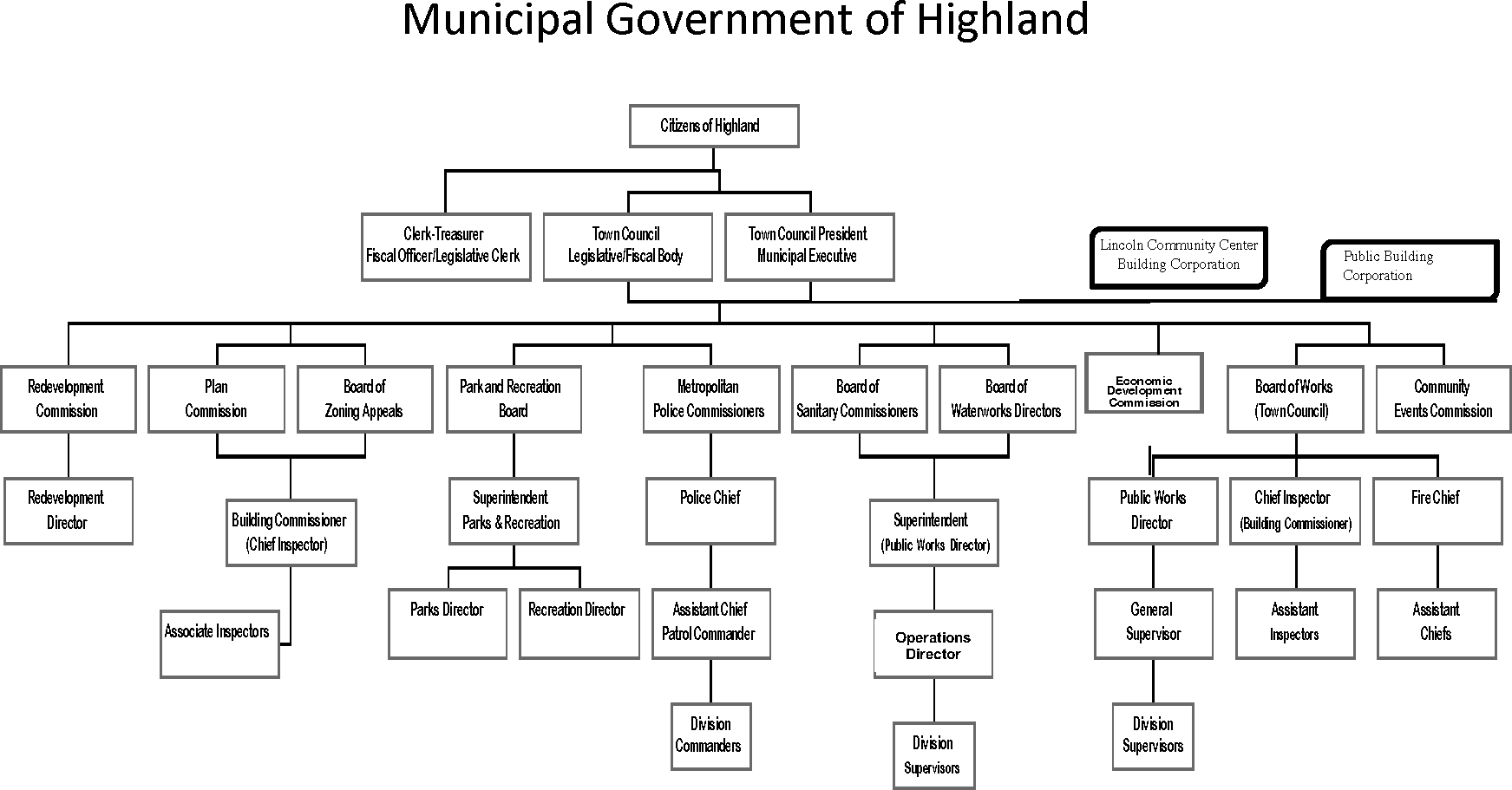
Organizational chart as of April 1, 2020.
[Ord. 1716 § 1 (Exh. § 6.0(II)), 2020].
2.01.090 Complaints.
If any individual believes that he/she or any other program beneficiaries have been the object of unequal treatment or discrimination as to the receipt of benefits and/or service, or on the grounds of race, color, national origin (including limited English proficiency), sex, age, or disability, he/she may exercise his/her right to file a complaint with the town. The complaint process is included in Article V of this chapter and the complaint form is included in HMC 2.01.340, Appendix F – Forms. Complaints shall be filed with the Title VI coordinator. Every effort will be made to resolve complaints informally at the lowest level. [Ord. 1716 § 1 (Exh. § 6.0(III)), 2020].
2.01.100 Data collection.
Statistical data on race, color, national origin, English language ability, and sex of participants in and beneficiaries of the town programs (e.g., impacted citizens and affected communities) will be gathered and maintained using the voluntary Title VI Public Participation Survey found in HMC 2.01.340, Appendix F – Forms, at all public meetings. The gathering procedures will be reviewed annually to ensure sufficiency of the data in meeting the requirements of the Title VI program. [Ord. 1716 § 1 (Exh. § 6.0(IV)), 2020].
2.01.110 Program reviews.
Special emphasis program reviews will be conducted based on the annual summary of Title VI activities, accomplishments, and problems. The reviews will be conducted by the Title VI coordinator to assure effectiveness in their compliance with Title VI provisions and compliance with the requirements of INDOT. The Title VI coordinator will coordinate efforts to ensure the equal participation in all their programs and activities at all levels. The town does not have any special emphasis programs at this time. [Ord. 1716 § 1 (Exh. § 6.0(V)), 2020].
2.01.120 Title VI reviews on sub-recipients.
Title VI compliance reviews of sub-recipients will be conducted annually by the Title VI coordinator. Priority for conducting reviews will be given to those sub-recipients of federal funds with the greatest potential of impact to those groups covered. The reviews will entail examination of the sub-recipients’ adherence to all Title VI requirements. The status of each review will be reported in the annual update and reported to INDOT upon request. Examples of sub-recipients would include applicants awarded funding through the U.S. Department of Housing and Urban Development (HUD) Community Development Block Grant (CDBG) and HOME Investment Partnerships Program (HOME) administered by the town and contractors and consultants that receive funding provided to the town by a federal agency or through a recipient of monies from a federal agency (e.g., INDOT through FHWA). [Ord. 1716 § 1 (Exh. § 6.0(VI)), 2020].
2.01.130 Annual reporting form.
The Title VI coordinator will be responsible for coordination, compilation, and submission of the annual reporting form data to INDOT via the LPA Pre-Award Certification and Assurance, accessible online at http://itap.indot.in.gov, by 11:59 p.m. on September 1st or as otherwise mandated by INDOT.
Annual updates to the Title VI Implementation Plan shall include goals for the new reporting period and information related to tracking of complaints and training of town employees. [Ord. 1716 § 1 (Exh. § 6.0(VII)), 2020].
2.01.140 Training.
The Title VI coordinator is required to attend an INDOT training session annually, at which time information will be obtained about other training opportunities for the coordinator and other town staff, if applicable. The Title VI coordinator will also monitor INDOT’s annual directives related to information they require to be provided to prove the town is meeting their Title VI compliance obligations. Under the direction of the Title VI coordinator, liaisons will be required to document the Title VI training that is provided to their staff and track attendance. Documentation should include the type of training, number and type of individuals trained, and materials. Identification of training goals and opportunities for the upcoming year should be planned annually. All training needs to be documented on the annual reporting form to INDOT and annual goals and accomplishments form. Frequency of training of staff is to be determined by the town to meet INDOT requirements and ensure compliance with Title VI. [Ord. 1716 § 1 (Exh. § 6.0(VIII)), 2020].
2.01.150 Public dissemination.
The town will disseminate Title VI program information to town employees and to the general public. Title VI program information will be submitted to sub-recipients, contractors, and beneficiaries. Public dissemination will include inclusions of Title VI language in contracts and publishing the Title VI plan on the town of Highland’s website, at www.highland.in.gov/. [Ord. 1716 § 1 (Exh. § 6.0(IX)), 2020].
2.01.160 Remedial action.
The town, through the Title VI coordinator, will actively pursue the prevention of Title VI deficiencies and violations and will take the necessary steps to ensure compliance with all program administrative requirements. When deficiencies are found, procedures will be promptly implemented to correct the deficiencies and to put in writing the corrective action(s). The period to determine corrective action(s) and put it/them in writing to effect compliance may not exceed 90 days from the date the deficiencies are found. [Ord. 1716 § 1 (Exh. § 6.0(X)), 2020].
Article III. Limited English Proficiency
2.01.170 Limited English proficiency (LEP).
On August 11, 2000, President William J. Clinton signed an executive order (Executive Order 13166: Improving Access to Service for Persons with Limited English Proficiency) to clarify Title VI of the Civil Rights Act of 1964. It had as its purpose to ensure accessibility to programs and services to otherwise eligible persons who are not proficient in the English language.
This executive order stated that individuals who do not speak English well and who have a limited ability to read, write, speak, or understand English are entitled to language assistance under Title VI of the Civil Rights Act of 1964 with respect to a particular type of service, benefit, or encounter. These individuals are referred to as being limited in their ability to speak, read, write, or understand English, hence the designation, “LEP,” or limited English proficient. The executive order states that:
Each federal agency shall prepare a plan to improve access to its federally conducted programs and activities by eligible LEP persons. Each plan shall be consistent with the standards set forth in the LEP Guidance, and shall include the steps the agency will take to ensure that eligible LEP persons can meaningfully access the agency’s programs and activities.
Not only are all federal agencies required to develop LEP plans as a condition of receiving federal financial assistance, recipients have to comply with Title VI and LEP guidelines of the federal agency from which funds are provided as well.
Federal financial assistance includes grants, training, use of equipment, donations of surplus property, and other assistance. Recipients of federal funds range from state and local agencies to nonprofits and organizations. Title VI covers a recipient’s entire program or activity. This means all parts of a recipient’s operations are covered, even if only one part of a recipient’s organization receives the federal assistance. Simply put, any organization that receives federal financial assistance is required to follow this executive order.
A person who does not speak English as their primary language and who has a limited ability to read, write, speak, or understand English may be a limited English proficient person and may be entitled to language assistance with respect to the town of Highland’s programs and activities. Language assistance can include interpretation, which means oral or spoken transfer of a message from one language into another language, and/or translation, which means the written transfer or a message from one language into another language. The town of Highland will determine when interpretation and/or translation are needed and are reasonable.
According to 2010-2014 American Community Survey information obtained from the U.S. Census, the number of individuals age five and over that identified as having the ability to speak English less than “very well” is less than 3.2 percent overall for the town. Linguistically isolated households (households where no one 14 years of age or older speaks only English or speaks English “very well”) speak Spanish (20.7 percent), other Indo-European languages (73.4 percent), and other languages (5.9 percent). The table below includes information about LEP populations in the town.
Further detailed review using the U.S. EPA’s EJSCREEN is available by Census Tract Block Group. EJSCREEN is a screening tool for pre-decisional use only and can help identify areas that may warrant additional consideration, analysis, or outreach. It does not provide a basis for decision-making, but it may help identify potential areas of EJ concern. Users should keep in mind that screening tools are subject to substantial uncertainty in their demographic and environmental data, particularly when looking at small geographic areas. This screening tool does not provide data on every environmental impact and demographic factor that may be relevant.
|
|
Total Population Age 5 Years and Over |
Speak English “Very Well” |
Speak English Less Than “Very Well” |
Total % Linguistically Isolated Households |
|---|---|---|---|---|
|
Totals |
22,317 |
21,603 (96.8%) |
703 (3.2%) |
1.77% |
Source: U.S. Census, American Community Survey (ACS) 2010-2014.
[Ord. 1716 § 1 (Exh. § 7.0), 2020].
2.01.180 Language assistance.
The town of Highland staff shall consider the following to identify if an interpreter and/or translator are needed or if an LEP person needs language assistance:
(A) Examine records to see if requests for language assistance have been received in the past, either at meetings or over the phone, to determine whether language assistance might be needed at future events.
(B) Have language identification flashcards (see HMC 2.01.330, Appendix E – LEP and environmental justice information) available at buildings where the public typically visits, including the town municipal building, public works, and police department. Flashcards should be available at human resources and all town departments near customer service areas where they can be easily accessible by staff. Individuals self-identifying as persons not proficient in English may not be able to be accommodated with translation assistance at the time, but it will assist in identifying language assistance needs for future events. [Ord. 1716 § 1 (Exh. § 7.0), 2020].
2.01.190 Language assistance measures.
Although there is a low percentage of LEP individuals in the town of Highland (persons who speak English less than “very well”), the town will strive to offer language assistance using the following measures:
(A) If an individual asks for language assistance, the town of Highland will determine if the individual is an LEP person and language assistance is necessary to provide meaningful access. The town has the discretion to determine whether language assistance is needed and, if so, the type of language assistance necessary to provide meaningful access.
(B) When an interpreter is needed, in person or on the telephone, staff will attempt to determine what language is required and access the language interpreting service to be used.
(C) The town of Highland will periodically assess the need for language assistance based on requests for interpreters and/or translators.
For more information regarding LEP, visit the town website at www.highland.in.gov/or contact:
PUBLIC WORKS DIRECTOR
Title VI Coordinator
8001 Kennedy Street
Highland, IN 46322
Phone: (219) 972-5069
Fax: (219) 972-5085
[Ord. 1716 § 1 (Exh. § 7.0), 2020].
Article IV. Environmental Justice
2.01.200 Environmental justice.
(A) Compliance with Title VI includes ensuring that no minority or low-income population suffers “disproportionately high and adverse human health or environmental effect” due to any “programs, policies, and activities” undertaken by any agency receiving federal funds. This obligation will be met by the town of Highland in the following ways:
(1) When planning specific programs or projects, identifying those populations that will be affected by a given program or project.
(2) If a disproportionate effect is anticipated, following mitigation procedures.
(3) If mitigation options do not sufficiently eliminate the disproportionate effect, discussing and, if necessary, implementing reasonable alternatives.
(B) Disproportionate effects are those effects which are appreciably more severe for one group or predominantly borne by a single group. According to U.S. Census data, the Town of Highland has a total minority percentage of 19.76 percent and over six percent of the population has income below the poverty level. Data summarized below includes information on low-income and minority populations.
|
|
Total by Race |
Percent |
Census Tract |
|||||
|---|---|---|---|---|---|---|---|---|
|
405.01 |
405.02 |
406 |
407 |
408.01 |
408.02 |
|||
|
Total Population |
23,727 |
100.00% |
3,623 |
3,519 |
3,759 |
5,031 |
3,888 |
3,907 |
|
White |
21,027 |
88.62% |
2,841 |
3,057 |
3,379 |
4,511 |
3,578 |
3,661 |
|
African American |
997 |
4.20% |
430 |
211 |
94 |
161 |
68 |
33 |
|
Asian |
380 |
1.60% |
125 |
97 |
49 |
37 |
28 |
44 |
|
American Indian/Alaska Native |
49 |
0.21% |
1 |
4 |
13 |
7 |
10 |
14 |
|
Pacific Islander |
1 |
0.00% |
0 |
0 |
0 |
0 |
0 |
1 |
|
Two or More Races |
251 |
1.06% |
57 |
31 |
34 |
64 |
37 |
28 |
|
Other Race |
1,022 |
4.31% |
169 |
119 |
190 |
251 |
167 |
126 |
|
|
||||||||
|
Total Hispanic Population |
3,047 |
12.85% |
497 |
385 |
534 |
631 |
498 |
502 |
|
Total Non-Hispanic Population |
20,680 |
87.15% |
3,126 |
3,134 |
3,225 |
4,400 |
3,390 |
3,405 |
|
|
||||||||
|
Total Minority Population |
4,688 |
19.76% |
30.63% |
20.69% |
19.26% |
17.89% |
16.49% |
15.92% |
Source: U.S. Census Bureau, Census 2010.
|
|
Total |
|---|---|
|
Median Household Income |
$62,738 |
|
Percentage of Families with Income Below the Poverty Level |
4.3% |
|
Percentage of All People with Income Below the Poverty Level |
6.1% |
NOTE: 2014 poverty thresholds – $12,071 for an individual, $24,230 for four-person household.
Source: U.S. Census, American Community Survey (ACS) 2010-2014.
(C) There are two census tracts that have a minority population percentage that exceeds the total for the town and could be considered a high minority population area. Further detailed review using the U.S. EPA’s EJSCREEN is available by Census Tract Block Group. EJSCREEN is not intended to provide a risk assessment and does not provide data on every environmental impact and demographic indicator that may be relevant to a particular location, and data may be several years old. Screening results should be supplemented with additional information and local knowledge to get a better understanding of the issues in a selected location. Block groups with minority and income population data are included on Table 4. High minority population (exceeds total town percentage of 19.76 percent) and/or LEP populations (identified in the table as linguistically isolated households) are highlighted. Block groups with low-income populations near or above the state average of 35 percent are also highlighted.
|
Census Tract, Block Group |
Approximate Population |
% Minority Population |
% Low-Income Population |
Linguistically Isolated Households |
|---|---|---|---|---|
|
Tract 405, Block 011 |
1,052 |
19% |
14% |
0% |
|
Tract 405, Block 012 |
1,362 |
18% |
26% |
0% |
|
Tract 405, Block 013 |
1,030 |
57% |
32% |
2% |
|
Tract 405, Block 021 |
1,736 |
21% |
19% |
11% |
|
Tract 405, Block 022 |
1,333 |
14% |
12% |
1% |
|
Tract 406, Block 001 |
952 |
15% |
24% |
0% |
|
Tract 406, Block 002 |
752 |
23% |
24% |
0% |
|
Tract 406, Block 003 |
864 |
22% |
21% |
6% |
|
Tract 406, Block 004 |
1,047 |
22% |
13% |
0% |
|
Tract 407, Block 001 |
2,003 |
21% |
16% |
0% |
|
Tract 407, Block 002 |
1,123 |
22% |
20% |
2% |
|
Tract 407, Block 003 |
1,363 |
40% |
26% |
0% |
|
Tract 407, Block 004 |
851 |
15% |
20% |
0% |
|
Tract 408, Block 011 |
1,265 |
13% |
11% |
0% |
|
Tract 408, Block 012 |
1,478 |
29% |
14% |
1% |
|
Tract 408, Block 013 |
1,138 |
24% |
33% |
0% |
|
Tract 408, Block 021 |
1,451 |
15% |
20% |
3% |
|
Tract 408, Block 022 |
890 |
7% |
27% |
0% |
|
Tract 408, Block 023 |
1,038 |
24% |
37% |
0% |
Source: U.S. EPA EJSCREEN Version 2016 (https://ejscreen.epa.gov).
(D) Additional investigation and outreach should be completed for projects in the highlighted block group areas. Statistics on census tract and block groups are included in HMC 2.01.330, Appendix E – LEP and environmental justice information. Where a project impacts a small number or area of low-income or minority populations, the town will document that:
(1) Other reasonable alternatives were evaluated and were eliminated for reasons such as the alternatives impacted a far greater number of people or did greater harm to the environment, etc.;
(2) The project’s impact is unavoidable;
(3) The benefits of the project far outweigh the overall impacts; and
(4) Mitigation measures are being taken to reduce the harm to low-income or minority populations.
If it is concluded that no minority and/or low-income population groups are present in the project area, the town will document how the conclusion was reached. If it is determined that one or more of these population groups are present in the area, the town will administer a potential disproportionate effects test.
(E) The following steps will be taken to assess the impact of a project on minority and/or low-income population groups:
(1) Step One. Determine if a minority or low-income population is present within the project area. The means of making this determination may include a detailed review of census tract and/or block group information or other reliable sources. If the conclusion is that no minority and/or low-income population is present within the project area, document how the conclusion was reached. If the conclusion is that there are minority population groups and/or low-income population groups present, proceed to Step Two.
(2) Step Two. Determine whether project impacts associated with the identified low-income and minority populations are disproportionately high and adverse. In doing so, refer to the list of potential impacts and questions contained in HMC 2.01.330, Appendix E – LEP and environmental justice information. If it is determined that there are disproportionately high and adverse impacts to minority and low-income populations, proceed to Step Three.
(3) Step Three. Propose measures that will avoid, minimize, and/or mitigate disproportionately high and disproportionate adverse impacts, and provide offsetting benefits and opportunities to enhance communities, neighborhoods, and individuals affected by the proposed project.
(4) Step Four. If after mitigation, enhancements, and offsetting benefits to the affected populations, there remains a high and disproportionate adverse impact to minority or low-income populations, then the following questions must be considered:
(a) Question 1: Are there further mitigation measures that could be employed to avoid or reduce the adverse effect to the minority or low-income population?
(b) Question 2: Are there other additional alternatives to the proposed action that would avoid or reduce the impacts to the low-income or minority populations?
(c) Question 3: Considering the overall public interest, is there a substantial need for the project?
(d) Question 4: Will the alternatives that would satisfy the need for the project and have less impact on protected populations:
1. Have other social, economic or environmental impacts that are more severe than those of the proposed action?
2. Have increased costs of extraordinary magnitude?
(5) Step Five. Include all findings, determinations, or demonstrations in the environmental document prepared for the project. [Ord. 1716 § 1 (Exh. § 8.0), 2020].
Article V. Filing a Title VI Complaint
2.01.210 Introduction.
(A) The Title VI complaint procedures are intended to provide aggrieved persons an avenue to raise complaints of discrimination regarding town programs, activities, and services as required by statute. Any person, who believes they have faced unequal treatment or discrimination as to the receipt of benefits and/or services based on their race, color, national origin, disability, sex, sexual orientation, gender identity, religion, age, low-income status, or limited English proficiency has the right to file a written complaint as described herein. Complaints should be filed with the town of Highland’s Title VI coordinator.
(B) These procedures cover all complaints filed under Title VI of the Civil Rights Act of 1964, Section 504 of the Rehabilitation Act of 1973, Civil Rights Act of 1987, the Americans with Disabilities Act of 1990, and other relevant regulations, statutes, directives, and executive orders relating to any federally funded contract or activity administered by the town. It also applies to sub-recipients, consultants, and contractors. Intimidation or retaliation of any kind is prohibited by law.
(C) The procedures do not deny the right of the complainant to file formal complaints with other state and federal agencies, or to seek private counsel for complaints alleging discrimination. Every effort will be made to obtain early resolution of complaints at the lowest level possible. The option of informal mediation meeting(s) between the affected parties, the Title VI coordinator, and the department heads may be utilized for resolution. A copy of the complaint form can be found in HMC 2.01.340, Appendix F – Forms. [Ord. 1716 § 1 (Exh. § 9.0(I)), 2020].
2.01.220 Purpose.
The purpose of the discrimination complaint procedures is to describe the process used by the town for processing complaints of discrimination under Title VI of the Civil Rights Act of 1964 and related statutes. [Ord. 1716 § 1 (Exh. § 9.0(II)), 2020].
2.01.230 Roles and responsibilities.
The Title VI coordinator has overall responsibility for the discrimination complaint process and procedures. The Title VI coordinator may, at his/her discretion, assign a capable person to investigate the complaint. The designated investigator will conduct an impartial and objective investigation, collect factual information, and prepare a fact-finding report based upon information obtained from the investigation. [Ord. 1716 § 1 (Exh. § 9.0(III)), 2020].
2.01.240 Procedure for filing a complaint.
(A) Any person, group of individuals, or entity that believes they have been excluded from participation in or denied benefits or services of any program or activity administered by the town or its sub-recipients, consultants, and contractors on the basis of race, color, national origin (including limited English proficiency), sex, age, or disability may bring forth a complaint of discrimination under Title VI. All complaints are to be filed with the town’s Title VI coordinator. The complainant(s) shall make themselves reasonably available to the designated investigator to ensure completion of the investigation within the timeframes set forth.
(B) In all situations, employees of the town must contact the Title VI coordinator immediately upon receipt of Title VI related complaints. Complaints must be filed within 180 days of the alleged discrimination. If the complainant could not reasonably be expected to know that the act was discriminatory within the 180-day period, he/she will have 60 additional days after becoming aware of the illegal discrimination to file the complaint.
(C) Complaints must be in writing, and must be signed by the complainant and/or the complainant’s representative. See HMC 2.01.340, Appendix F – Forms, for the Title VI complaint form. The complaint must set forth, as fully as possible, the facts and circumstances surrounding the claimed discrimination. In cases where the complainant is unable or incapable of providing a written statement, the complainant will be assisted in converting the verbal complaint into a written complaint. All complaints, however, must be signed by the complainant and/or by the complainant’s representative. Upon review of the information included in the complaint, the Title VI coordinator shall decide the course of action and notify the complainant of the determination. All complaints will be logged into the complaint log (see HMC 2.01.340, Appendix F – Forms).
(D) Items that should not be considered a formal complaint (unless the items contain a signed cover letter specifically alleging a violation of Title VI) include, but are not limited to:
(1) An anonymous complaint that is too vague to obtain required information;
(2) Inquiries seeking advice or information;
(3) Courtesy copies of court pleadings;
(4) Newspaper articles;
(5) Courtesy copies of internal grievances;
(6) Oral complaints (unless provided by a limited English proficient person). [Ord. 1716 § 1 (Exh. § 9.0(IV)), 2020].
2.01.250 Investigation.
(A) The Title VI coordinator shall designate a department head to lead the investigation. In the event the complaint is against a department head, the Title VI coordinator shall lead the investigation. The investigator shall prepare a written plan, which includes, but is not limited to the following:
(1) Names of the complainant(s) and respondent(s) basis for complaint;
(2) Issues, events, or circumstances that caused the person to believe that he/she has been discriminated against;
(3) Information needed to address the issue;
(4) Criteria, sources necessary to obtain the information;
(5) Identification of key people;
(6) Estimated investigation timeline and remedy sought by the complainant(s).
(B) In conducting the investigation, the following factors will be considered:
(1) The investigation will address only those issues relevant to the allegations in the complaint.
(2) In accordance with DOT Order 1000.12, the town of Highland shall keep all complainants’ identities confidential except to the extent necessary for carrying out an investigation. If an investigator determines that it is necessary to disclose the complainant’s identity to the responder or a third party, the investigator must first obtain complainant’s written permission. The complainant consent/release form is included in HMC 2.01.340, Appendix F – Forms. Confidentiality will be maintained as much as possible.
(3) Interviews will be conducted to obtain facts and evidence regarding the allegations in the complaint. The investigator will ask questions to elicit information about aspects of the case.
(4) A chronological contact sheet is maintained in the case file throughout the investigation.
(5) If a Title VI complaint is received on an INDOT-related contract against the town of Highland, INDOT will be notified and provided the opportunity to participate in the investigation of the complaint. Upon receipt of a Title VI complaint filed against the town of Highland, the complaint and any pertinent information should immediately be forwarded to INDOT’s Title VI program manager.
(6) Complaints made against a town of Highland’s sub-recipient should be investigated by the town following the complaint process.
(7) Within 60 days of receiving the complaint, the investigator shall prepare an investigative report and submit the report and supporting documentation to the Title VI coordinator for review.
(8) The Title VI coordinator reviews the file and investigative report. Subsequent to the review, the mayor makes a determination of “probable cause” or “no probable cause” and prepares the decision letter based on the facts of the investigation in consultation with the Title VI coordinator. A copy of the decision letter will be provided to the complainant.
(9) The complainant may receive a copy of the investigative report and shall be notified in the decision letter of their appeal rights.
(10) The town may, at its discretion, extend any deadline above for a reasonable amount of time if needed to complete a thorough investigation.
(C) The laws enforced by the town prohibit retaliation or intimidation against anyone because that individual has either taken action or participated in action to secure rights protected by these laws. If someone experiences retaliation or intimidation separate from the discrimination alleged in this complaint, they should contact the Title VI coordinator. [Ord. 1716 § 1 (Exh. § 9.0(V)), 2020].
2.01.260 Appeals, recordkeeping, and reporting requirements.
The complainant has the right to appeal the decision of the town to INDOT. The complainant must submit the appeal in writing to the town’s Title VI coordinator within 14 days of receipt of the town’s decision letter. The appeal must cite the specific portion(s) of the findings that the complainant disagrees with and the reason(s) for the disagreement. The town will forward the appeal to INDOT’s Title VI program manager within seven calendar days of receipt and cooperate fully in the appeal process as requested by INDOT.
All records and investigative working files are to be maintained in a confidential area. Records are to be kept for a minimum of three years or the amount of time dictated by the state’s record retention schedule, whichever is longer. All complaints shall be documented on the complaint log. A copy of the complaint, together with a copy of the investigation report and final decision letter, will be forwarded to the INDOT Title VI program manager following expiration of the appeal period. [Ord. 1716 § 1 (Exh. § 9.0(VI)), 2020].
Article VI. Public Involvement and Outreach
2.01.270 Public involvement and outreach.
The town will provide information on Title VI responsibilities to the public and employees. Information will be available on postings in town facilities, town website, and employee handbooks. A review will be done of the town’s website for compliance with applicable accessibility guidelines and suggested improvements considered to provide better access to users. A voluntary public involvement survey will be available at all public meetings to collect information regarding persons affected by proposed projects. The voluntary survey will be anonymous and collect data regarding gender, ethnicity, race, ages, disability status, household income, and other information. The survey will be available at all public hearings and meetings on projects, and completed surveys shall be retained for a minimum of three years from the date of the meeting or completion of the related project, if applicable. A copy of the public involvement survey is included in HMC 2.01.340, Appendix F – Forms. The town will strive to modify the public involvement and outreach program based on input from respondents and INDOT as needed. [Ord. 1716 § 1 (Exh. § 10.0), 2020].
Article VII. Title VI Program Goals
2.01.280 Title VI program goals for 2019.
The town has identified the following Title VI program goals for 2019. Updates to the program goals will be provided as part of the annual Title VI implementation plan to be prepared annually.
(A) The town shall adopt the nondiscrimination policy statement, Title VI assurance, and Title VI nondiscrimination plan following a public hearing.
(B) A copy of the town of Highland’s Title VI nondiscrimination plan will be provided to each town department head, who will review the plan with departmental employees.
(C) Prepare a list of department liaisons and publish that list. A copy of the list should be provided to each department and made readily available to the public upon request.
(D) The town of Highland’s Title VI plan and all forms will be published on the town of Highland’s website.
(E) The name and contact information of the town’s Title VI coordinator will be provided on all relevant publications and on the town website.
(F) Ensure that the federal-aid contract language included in Appendix A (HMC 2.01.290) is included in all town contracts as outlined in the Title VI plan.
(G) The language in HMC 2.01.040(B) will be included in all solicitations for bids for work or material subject to the Regulations and in all proposals for negotiated agreements.
(H) The procedure(s) for responding to individuals with limited English proficiency will be developed and implemented.
(I) The Title VI coordinator shall attend the mandatory training required by INDOT on Title VI.
(J) The Title VI coordinator shall provide department heads with Title VI training and document and maintain attendance records of all training sessions.
(K) All town of Highland employees will be trained or made aware of the requirements of Title VI, the LEP procedure, and the Title VI complaint procedure.
(L) Provide copies of the voluntary Title VI public participation survey found in HMC 2.01.340, Appendix F – Forms, at all public meetings.
(M) Provide copies of the language identification flashcards found in HMC 2.01.340, Appendix F – Forms, to all department heads and ensure that all employees are aware of their location when needed.
(N) Identify local foreign language translators that can be contracted to assist LEP individuals.
(O) The following data will be collected and reviewed by the Title VI coordinator and documented as noted in the Title VI plan:
(1) Boards and Commissions. The number of vacancies, how vacancies are advertised and filled, the number of applicants, and the representation of minorities on town boards and commissions will be evaluated.
(2) Public Meetings. The number of open meetings and how meeting dates and times were communicated to the general public and to individuals directly affected by the project will be documented.
(3) Construction Projects. The number of construction projects, minority contractors bidding, and the number selected will be documented, along with verification that Title VI language was included in bids and contracts for each project.
(4) LEP Needs. The number of requests for language assistance that were requested or required and the outcome of these requests.
(5) Complaints. The number of Title VI complaints received, nature of the complaints, and resolution of the complaints.
(6) Timeliness of Services. The number of requests for services, amount of time from request to when service was delivered, and number of requests denied.
(7) Right-of-Way/Eminent Domain. The number of such actions and diversity of individuals affected.
(8) Program Participants. Racial data of program participants, where possible, based on information provided by attendees on the nonmandatory, anonymous public involvement survey.
(P) Begin preparation of the 2020 Title VI implementation plan in November 2019. [Ord. 1716 § 1 (Exh. § 11.0), 2020].
Article IX. Appendices
2.01.290 Appendix A – Federal-aid contract language.
The following language is to be inserted in all federal-aid contracts:
During the performance of this contract, the contractor, for itself, its assignees and successors in interest (hereinafter referred to as the “contractor”) agrees, as follows:
1. Compliance with Regulations: The contractor shall comply with Regulations relative to nondiscrimination in Federally-assisted programs of the Department of Transportation, Title 49, Code of Federal Regulations, Part 21, as they may be amended from time to time (hereinafter referred to as the Regulations), which are herein incorporated by reference and made a part of this contract.
2. Nondiscrimination: The contractor, with regard to the work performed by it during the contract, shall not discriminate on the grounds of race, color, sex, or national origin in the selection, retention, and treatment of subcontractors, including procurements of materials in the discrimination prohibited by Section 21.5 of the Regulation, including employment practices when the contractor covers a program set for in Appendix B of the Regulations.
3. Solicitation for Subcontracts, Including Procurements of Materials and Equipment: In all solicitations either by competitive bidding or negotiation made by the contractor for work to be performed under a subcontract, including procurements of materials or leases of equipment, each potential subcontractor or supplier shall be notified by the contractor of the contractor’s obligations under the contract and the Regulations relative to nondiscrimination on the grounds of race, color, or national origin.
4. Information and Reports: The contractor shall provide all information and reports required by the Regulations, or directives issues pursuant thereto, and shall permit access to its books, records, accounts, other sources of information, and its facilities as may be determined by the State Highway Department or the Federal Highway Administration to be pertinent to ascertain compliance with such Regulations or directives. Where any information required of a contractor is in the exclusive possession of another who fails or refuses to furnish this information, the contractor shall so certify to the State Highway Department or the Federal Highway Administration, as appropriate, and shall set forth what efforts it has made to obtain the information.
5. Sanctions for Noncompliance: In the event the contractor’s noncompliance with the nondiscrimination provisions of this contract, the State Highway Department shall impose such contract sanctions as it or the Federal Highway Administration may determine to be appropriate, including, but not limited to:
a. Withholding payments to the contractor under the contract until the contractor complies; and/or
b. Cancellation, termination or suspension of the contract, in whole or in part.
6. Incorporation of Provisions: The contractor shall include provisions of paragraphs (1) through (6) in every subcontract, including procurement of material and leases of equipment, unless exempt by the Regulations, or directives issued pursuant thereto. The contractor shall take such action with respect to any subcontract or procurement as the State Highway Department or the Federal Highway Administration may direct as a means of enforcing such provisions including sanctions for noncompliance: provided, however, that, in the event a contractor becomes involved in, or is threatened with, litigation with a subcontractor or supplier as a result of such direction, the contractor may request the State Highway Department to enter into such litigation to protect the interests of the State, and, in addition, the contractor may request the United States to enter into such litigation to protect the interests of the United States.
[Ord. 1716 § 1 (Exh. App. A), 2020].
2.01.300 Appendix B – Transfer of property.
The following clauses shall be included in any and all deeds effecting or recording the transfer of real property, structures or improvements thereon, or interest therein from the United States:
[GRANTING CLAUSE]
NOW THEREFORE, the Department of Transportation, as authorized by law, and upon the condition that the Town of Highland, Indiana, will accept title to the lands and maintain the project constructed thereon, in accordance with Title 23, United States Code, the Regulations for the Administration of the Department of Transportation and, also in accordance with and in compliance with all requirements imposed by or pursuant to Title 49, Code of Federal Regulations, Department of Transportation, Subtitle A, Office of the Secretary, Part 21, Nondiscrimination in Federally-assisted programs of the Department of Transportation (hereinafter referred to as the Regulations) pertaining to and effectuating the provisions of Title VI of the Civil Rights Act of 1964 (78 Stat. 252; 42 U.S.C. 2000d to 2000d-4) does hereby remise, release, quitclaim and convey unto the Town of Highland, Indiana, all the right, title, and interest of the Department of Transportation in and to said lands described in Exhibit “A” attached hereto and made a part hereof.
[HABENDUM CLAUSE]
TO HAVE AND TO HOLD said lands and interests therein unto the Town of Highland, Indiana, and its successors forever, subject, however, to the covenants, conditions, restrictions, and reservations herein contained as follows, which will remain in effect for the period during which the real property or structures are used for a purpose for which Federal financial assistance is extended or for another purpose involving the provision of similar services or benefits and shall be binding on the Town of Highland, Indiana, its successors and assigns.
The Town of Highland, Indiana, in consideration of the conveyance of said lands and interests in lands, does hereby covenant and agree as a covenant running with the land for itself, its successors, and assigns, that (1) no person shall on the grounds of race, color, sex, age, disability, income status, or national origin, be excluded from participation in, be denied the benefits of, or be otherwise subjected to discrimination with regard to any facility located wholly or in part, on, over, or under such lands hereby conveyed (,) (and)*(2) that the Town of Highland, Indiana, shall use the lands and interests in lands so conveyed, in compliance with all requirements imposed by or pursuant to Title 49, Code of Federal Regulations, Department of Transportation, Subtitle A, Office of the Secretary, Part 21, Nondiscrimination in Federally-assisted programs of the Department of Transportation Effectuation of Title VI of the Civil Rights Act of 1964, and as said Regulations may be amended (,) and (3) that in the event of breach of any of the above-mentioned nondiscrimination conditions, the Department shall have a right to re-enter said lands and facilities on said land, and the above described land and facilities shall thereon revert to and vest in and become the absolute property of the Department of Transportation and its assigns as such interest existed prior to this deed.*
*Reverter clause and related language to be used only when it is determined that such a clause is necessary in order to effectuate the purpose of Title VI of the Civil Rights Act of 1964.
[Ord. 1716 § 1 (Exh. App. B), 2020].
2.01.310 Appendix C – Permits, leases, and licenses.
The following clauses shall be included in all deeds, licenses, leases, permits, or similar instruments entered into by the town of Highland, Indiana, pursuant to the provisions of HMC 2.01.040(B)(7)(a):
The grantee, licensee, lessee, permittee, etc., (as appropriate) for himself, his heirs, personal representative, successors in interest, and assigns, as a part of the consideration hereof, does hereby covenant and agree (in the case of deeds and leases, add, “as a covenant running with the land”) that in the event facilities are constructed, maintained, or otherwise operated on the said property described in this (deed, license, lease, permit, etc.) for a purpose for which a Department of Transportation program or activity is extended or for another purpose involving the provision of similar services or benefits, the (grantee, licensee, lessee, permittee, etc.) shall remain and operate such facilities and services in compliance with all other requirements imposed pursuant to Title 49, Code of Federal Regulations, Department of Transportation, Subtitle A, Office of the Secretary, Part 21, Nondiscrimination in Federally-assisted programs of the Department of Transportation – Effectuation of Title VI of the Civil Rights Act of 1964, and as said Regulations may be amended.
(Include in licenses, leases, permits, etc.)*:
That in the event of breach of any of the above nondiscrimination covenants, the Town of Highland, Indiana, shall have the right to terminate the license, lease, permit, etc., and to re-enter and repossess said land and the facilities thereon, and hold the same as if said license, lease, permit, etc., had never been made or issued.
(Include in deeds)*:
That in the event of breach of any of the above nondiscrimination covenants, the Town of Highland, Indiana, shall have the right to re-enter lands and facilities hereon, and the above described lands and facilities shall thereupon revert to and vest in and become the absolute property of the State of Indiana Department of Transportation and its assigns.
*Reverter clause and related language to be used only when it is determined that such a clause is necessary in order to effectuate the purpose of the Title VI of the Civil Rights Act of 1964 and the Civil Rights Act of 1987.
[Ord. 1716 § 1 (Exh. App. C), 2020].
2.01.320 Appendix D – Determine/distinguish significant/nonsignificant effects.
“Significant” requires considerations of both context and intensity:
(A) Context. This means that the significance of an action must be analyzed in several contexts such as society as a whole (human, nation), the affected region, the affected interests, and the locality. Significance varies with the setting of the proposed action. For instance, in the case of a site-specific action, significance would usually depend upon the effects in the local area rather than in the world as a whole. Both short- and long-term effects are relevant.
(B) Intensity. This refers to the severity of impact. Responsible officials must bear in mind that more than one agency may make decisions about partial aspects of a major action. The following should be considered in evaluating intensity:
(1) Impacts that may be both beneficial and adverse. A significant effect may exist even if, on balance, the effect would be beneficial.
“Nonsignificant effect” means no substantial change to an environmental component and this no material bearing on the decision-making process.
Scientific, technical, institutional, the public’s value, and the local economic conditions influence the meaning of significant effect.
If an alternative would provide a beneficial effect, then the alternative would cause no significant adverse effect. If an alternative would provide an adverse effect, the effect might be significant or the effect might be nonsignificant.
Determinations of “significant” and “nonsignificant” effects will be made by department heads, in consultation with the Title VI coordinator. [Ord. 1716 § 1 (Exh. App. D), 2020].
2.01.330 Appendix E – LEP and environmental justice information.
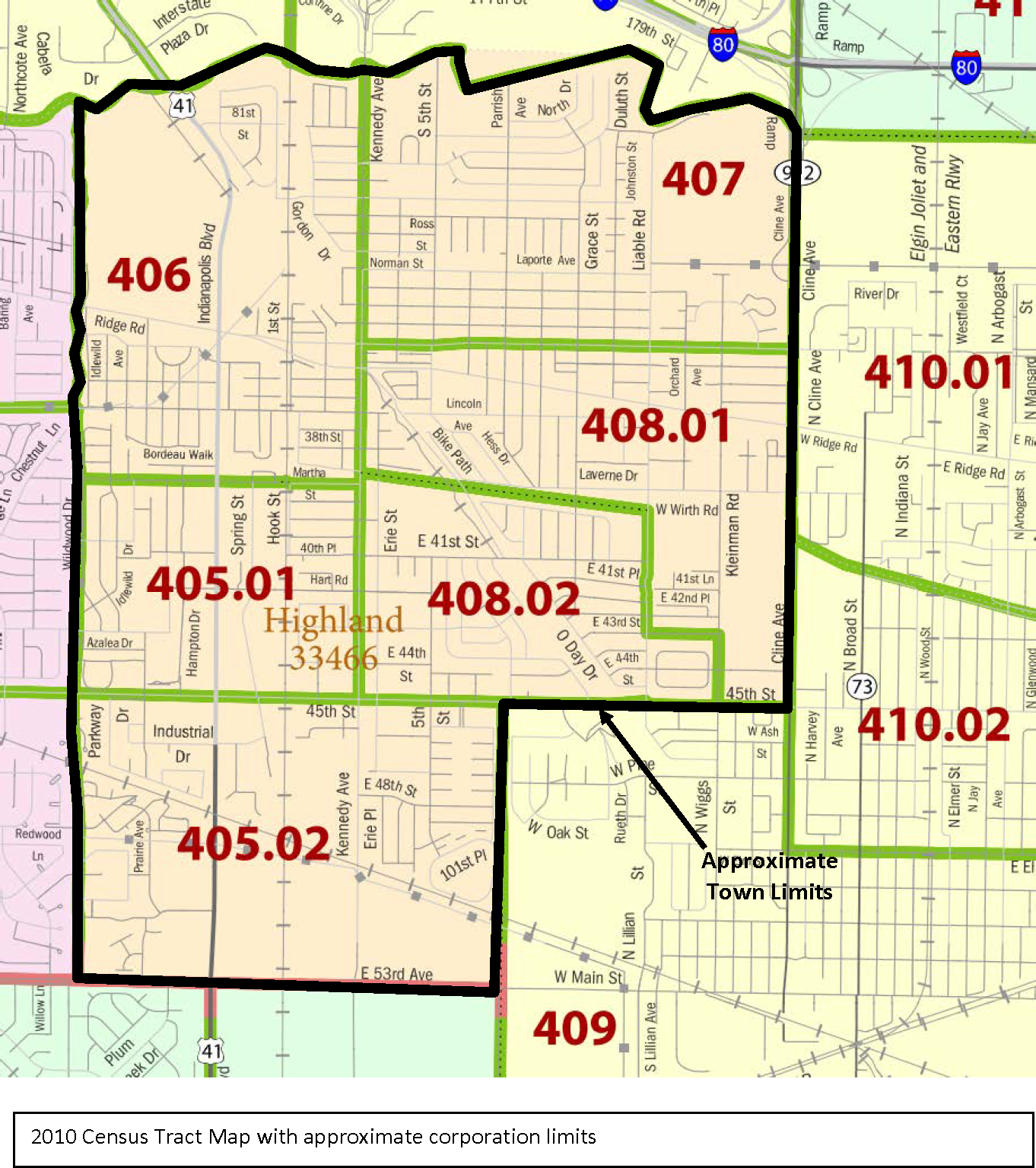
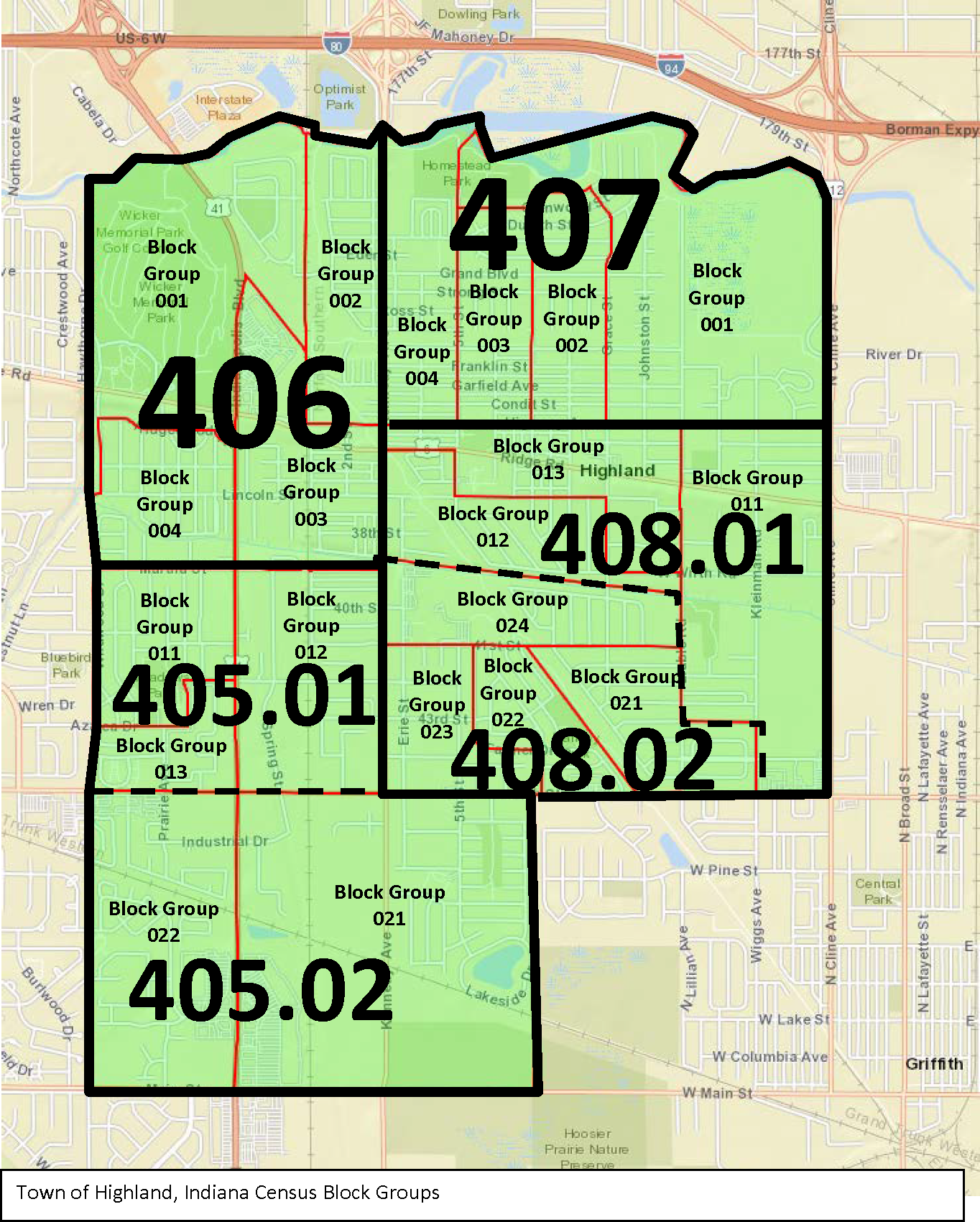
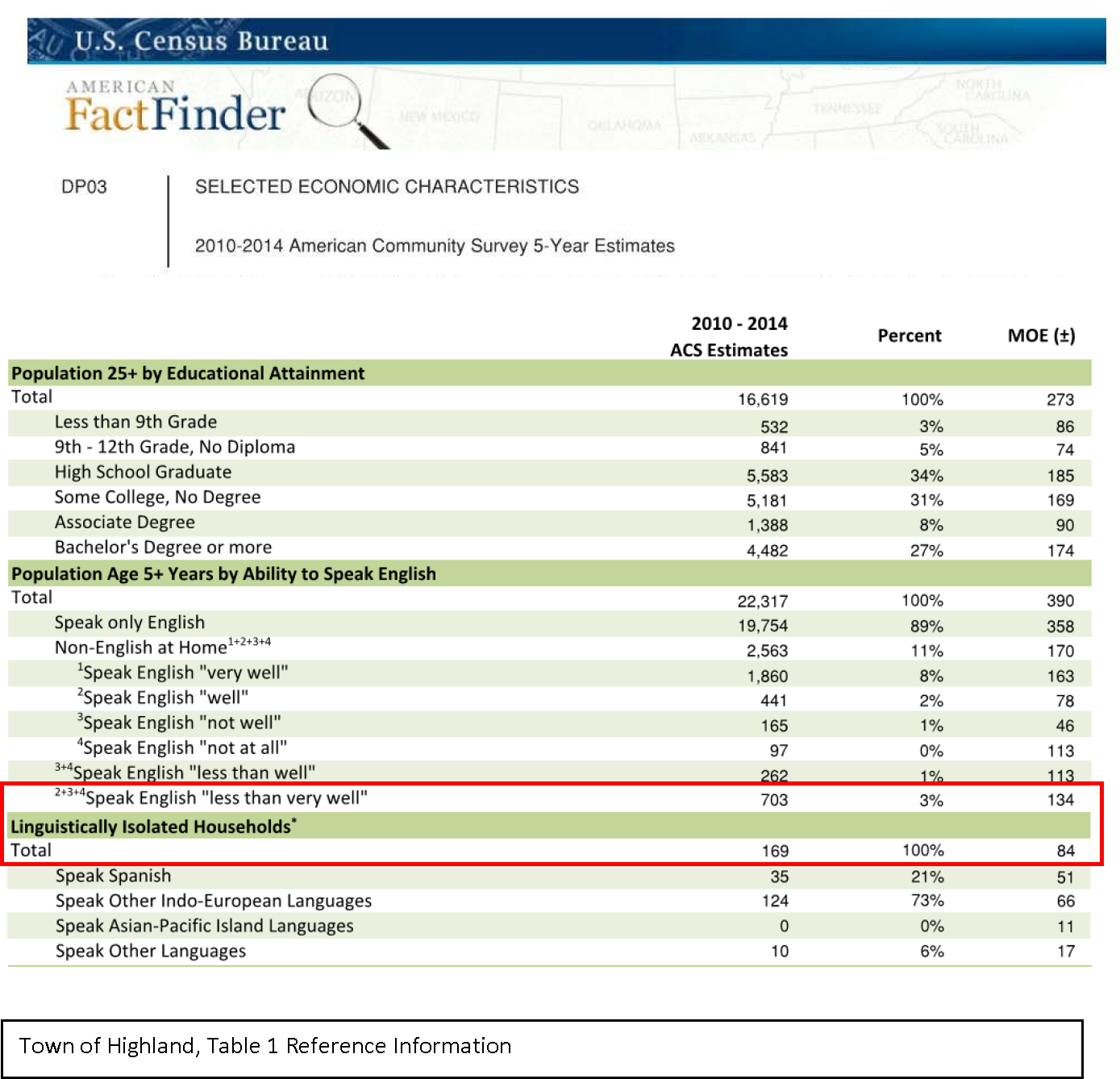
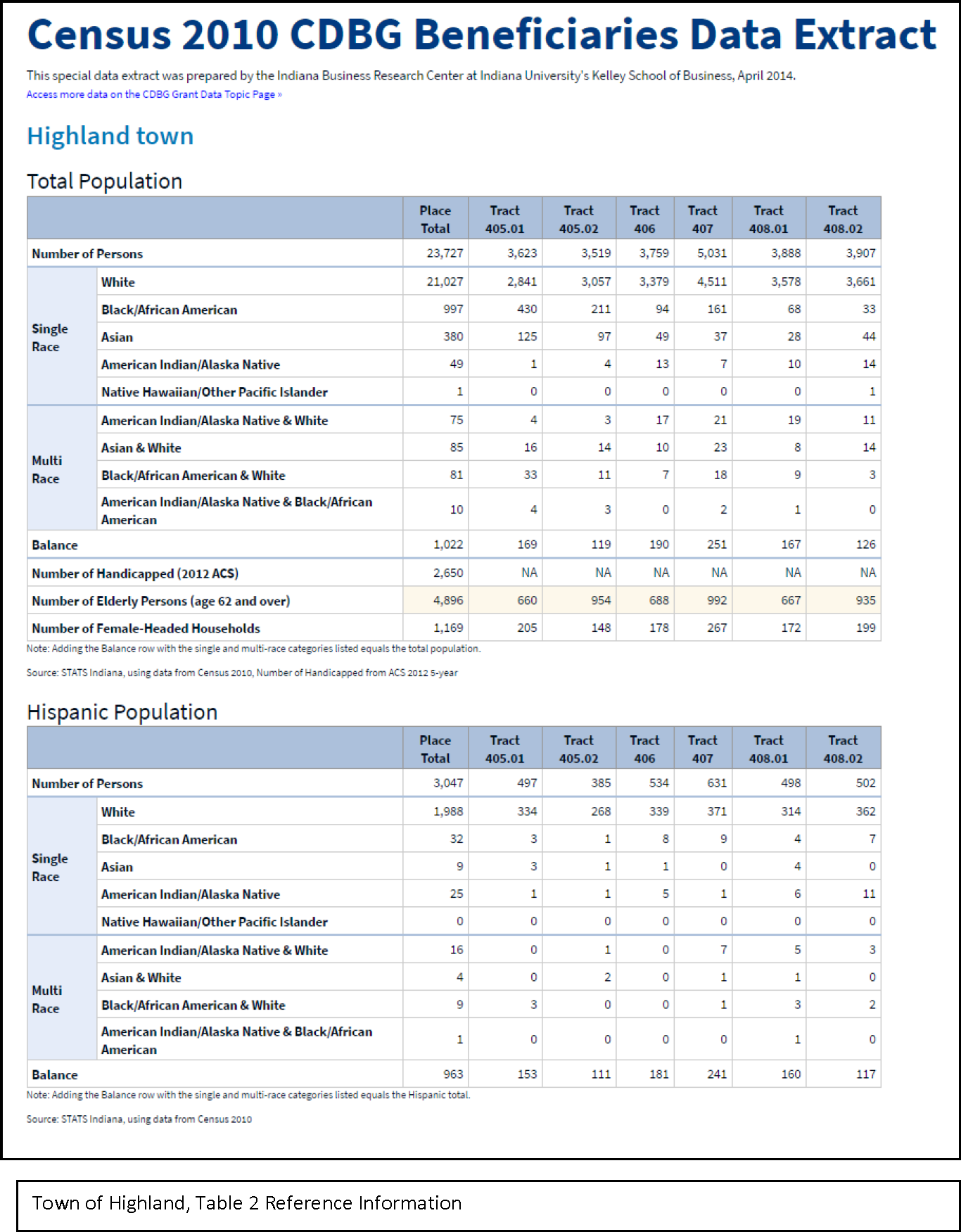
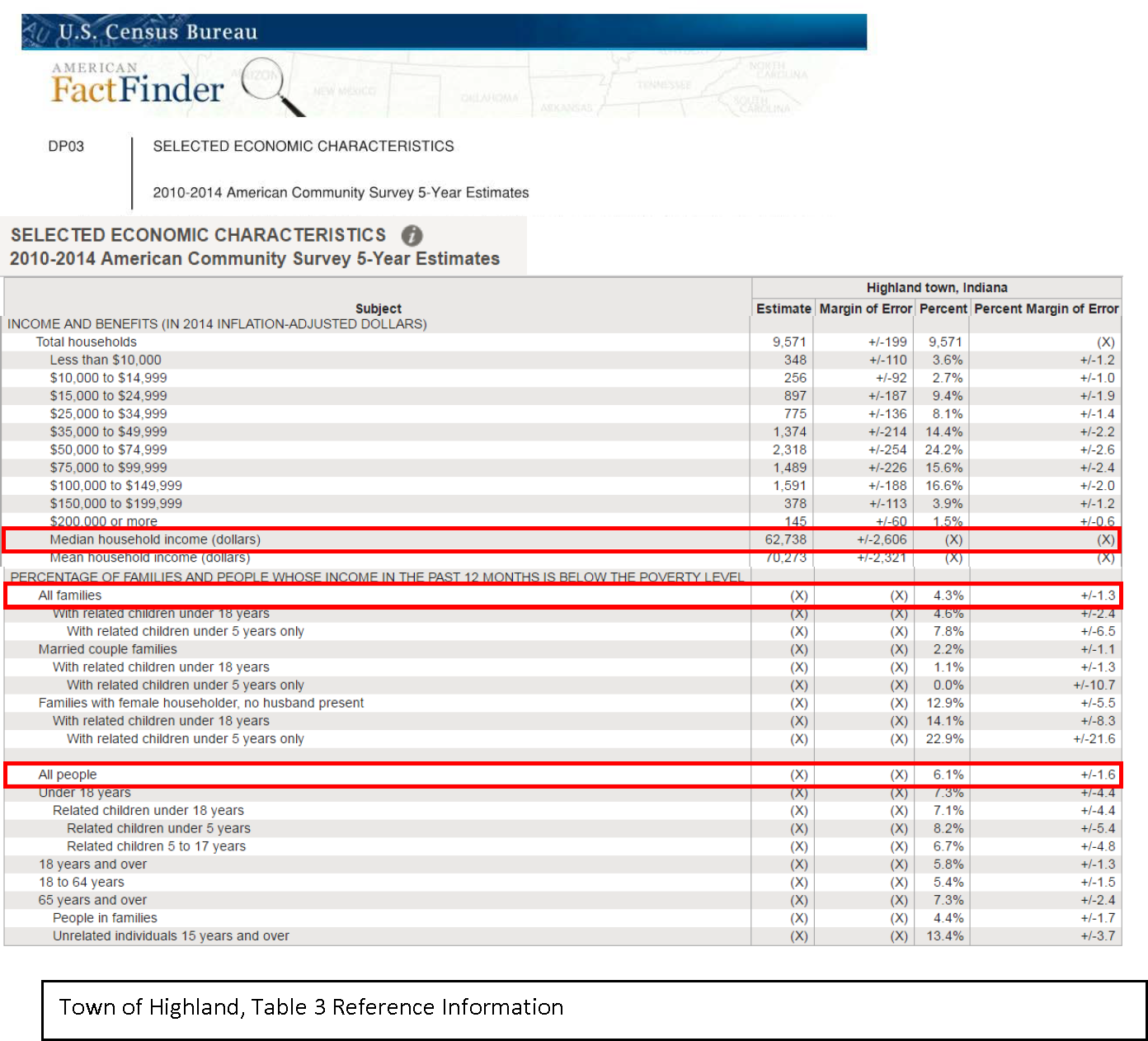
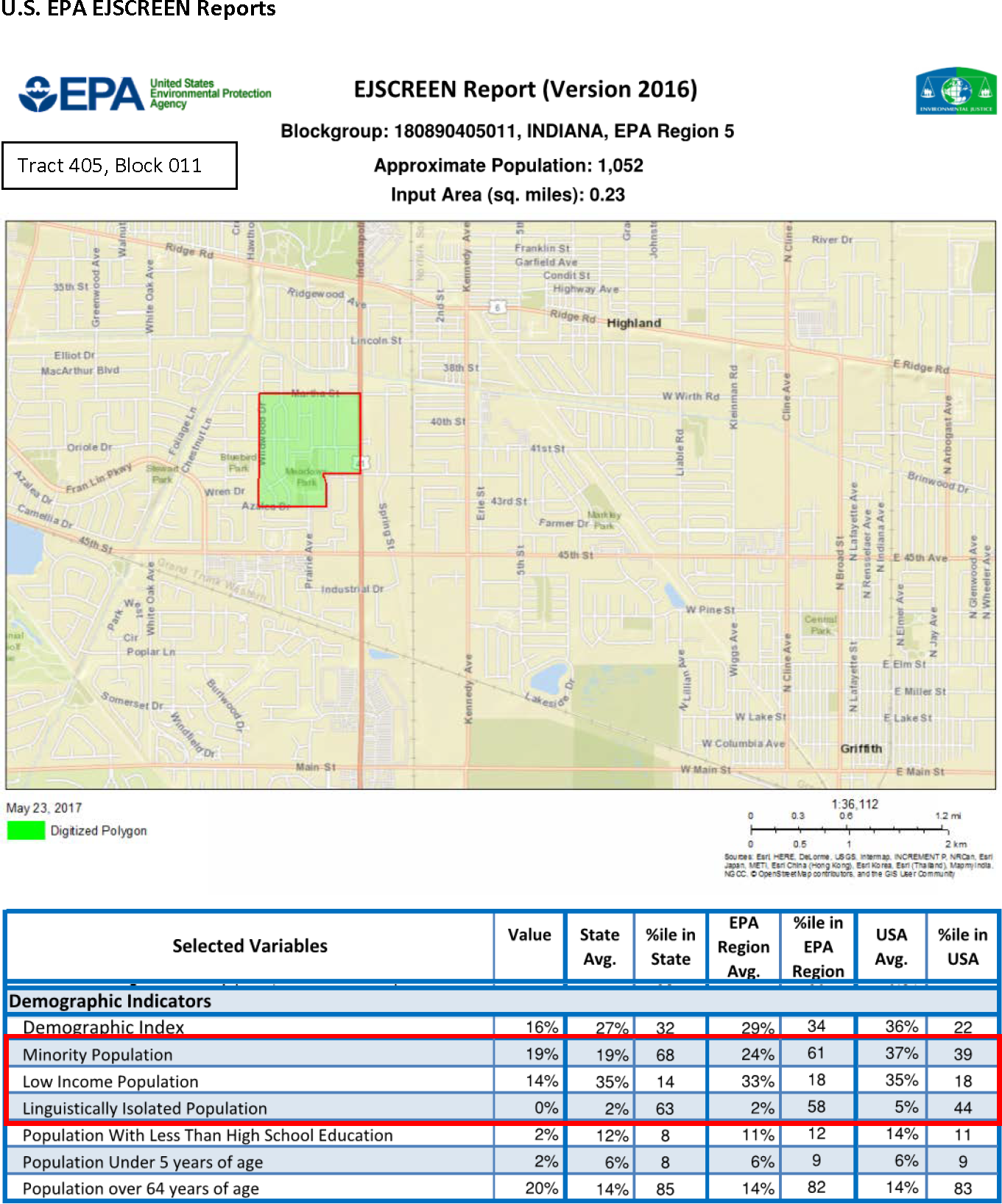
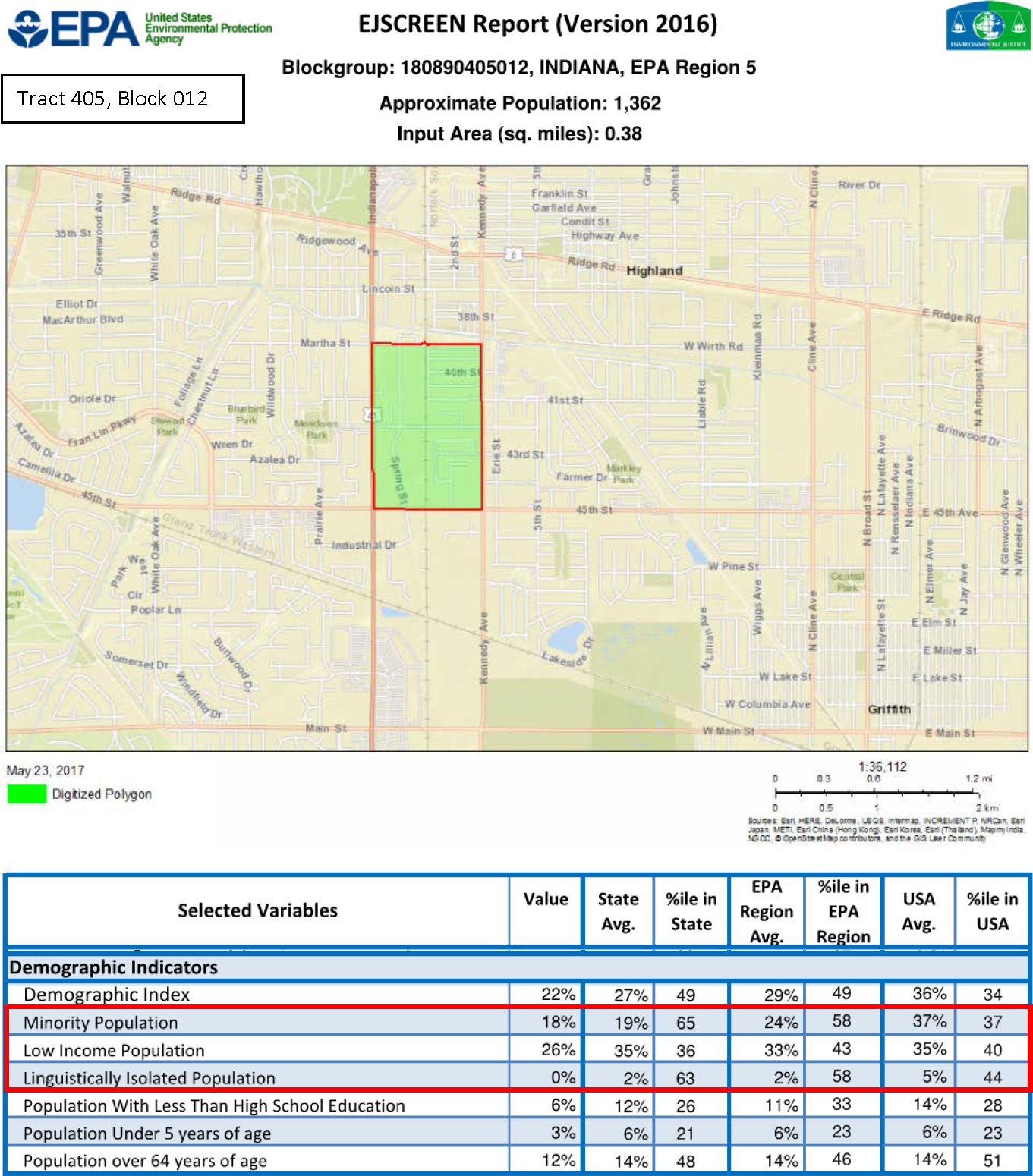
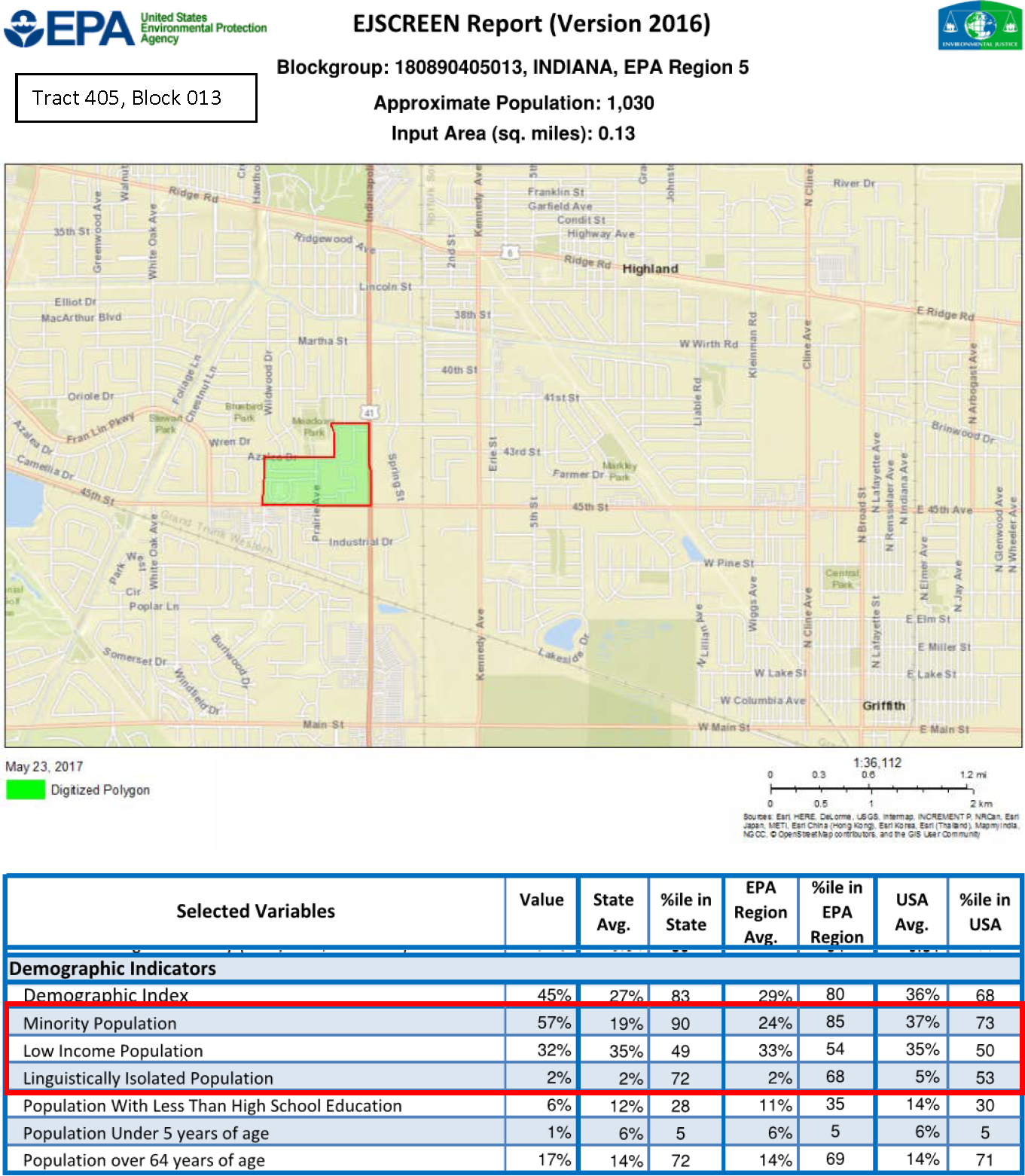
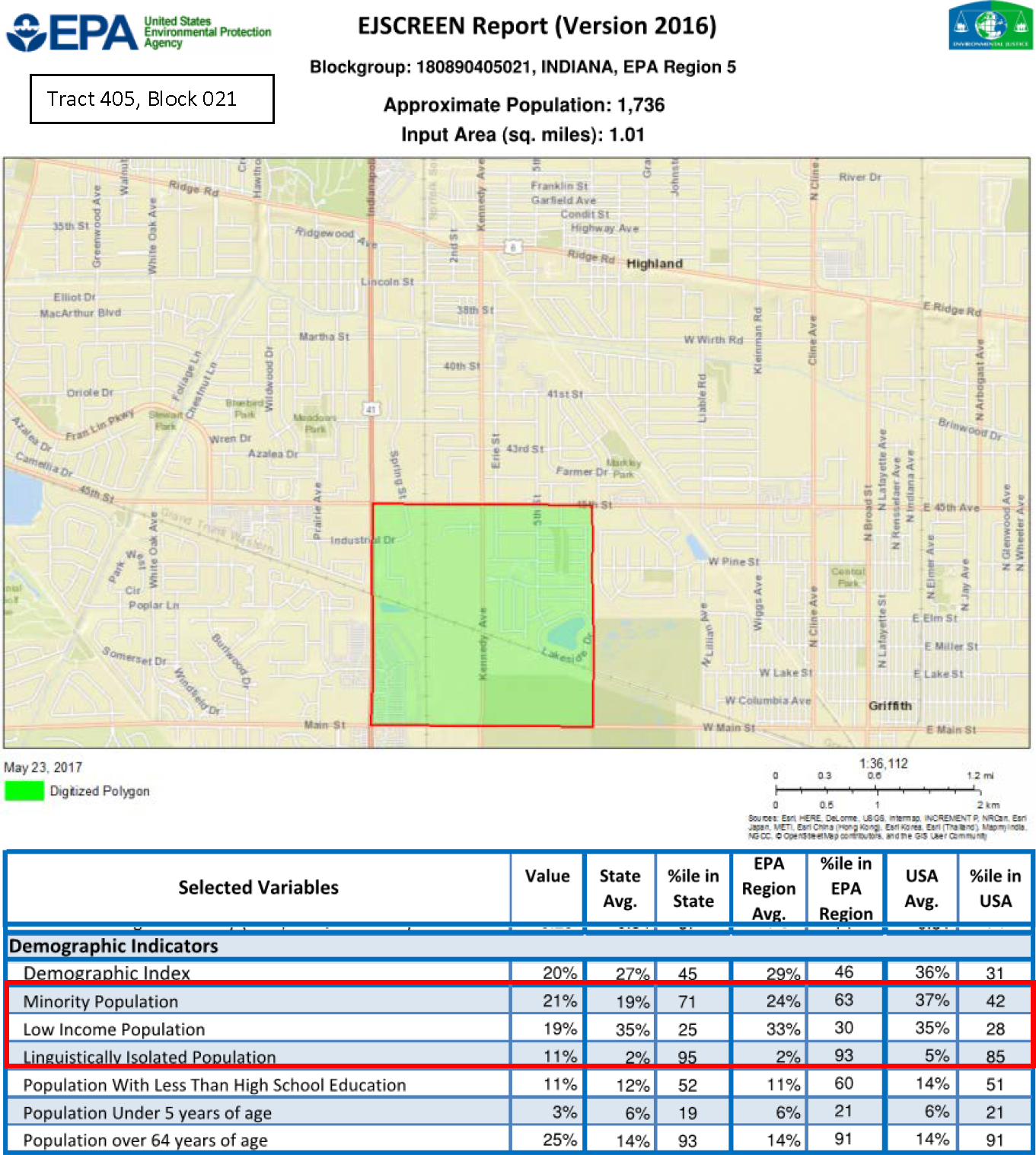
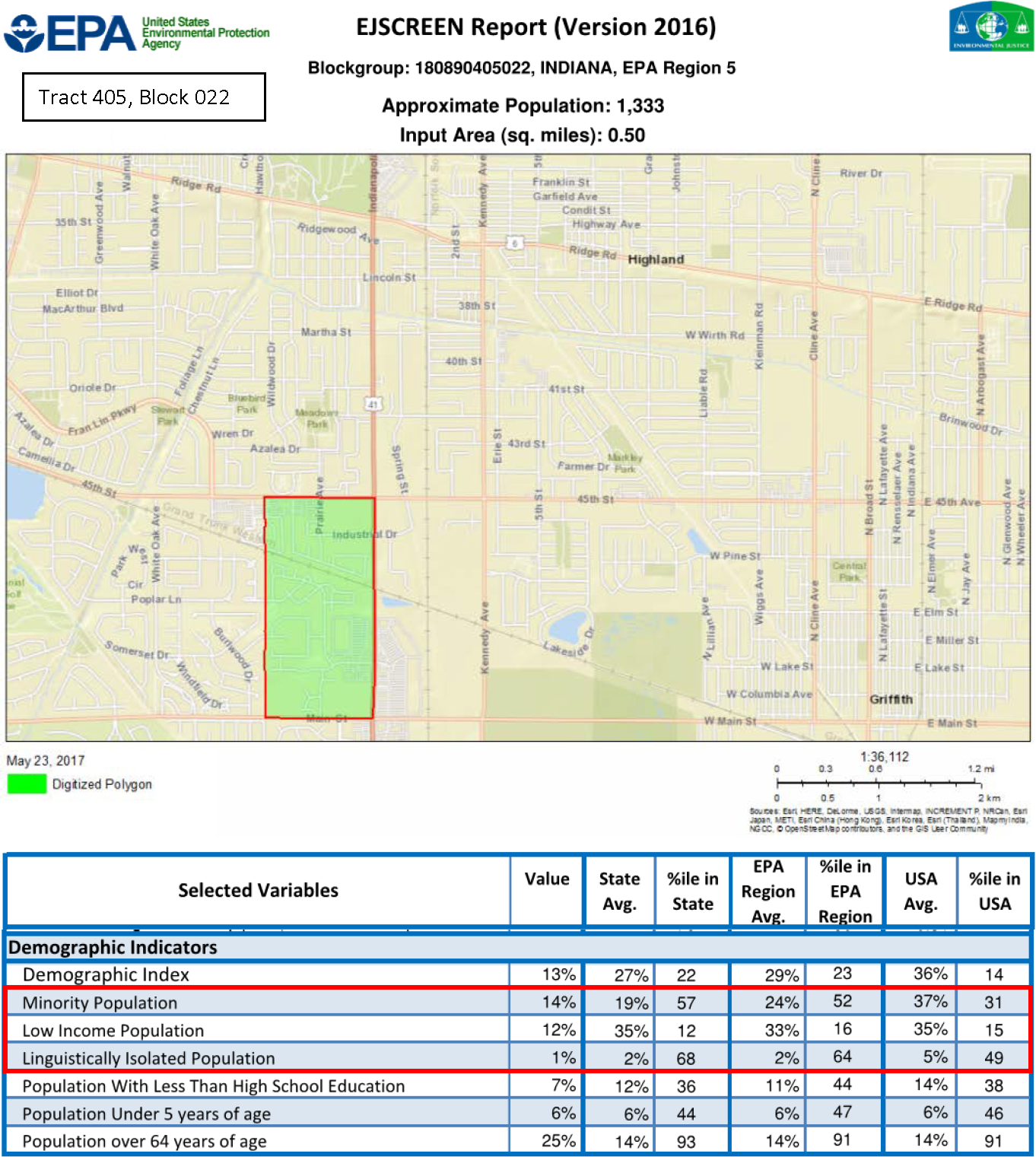
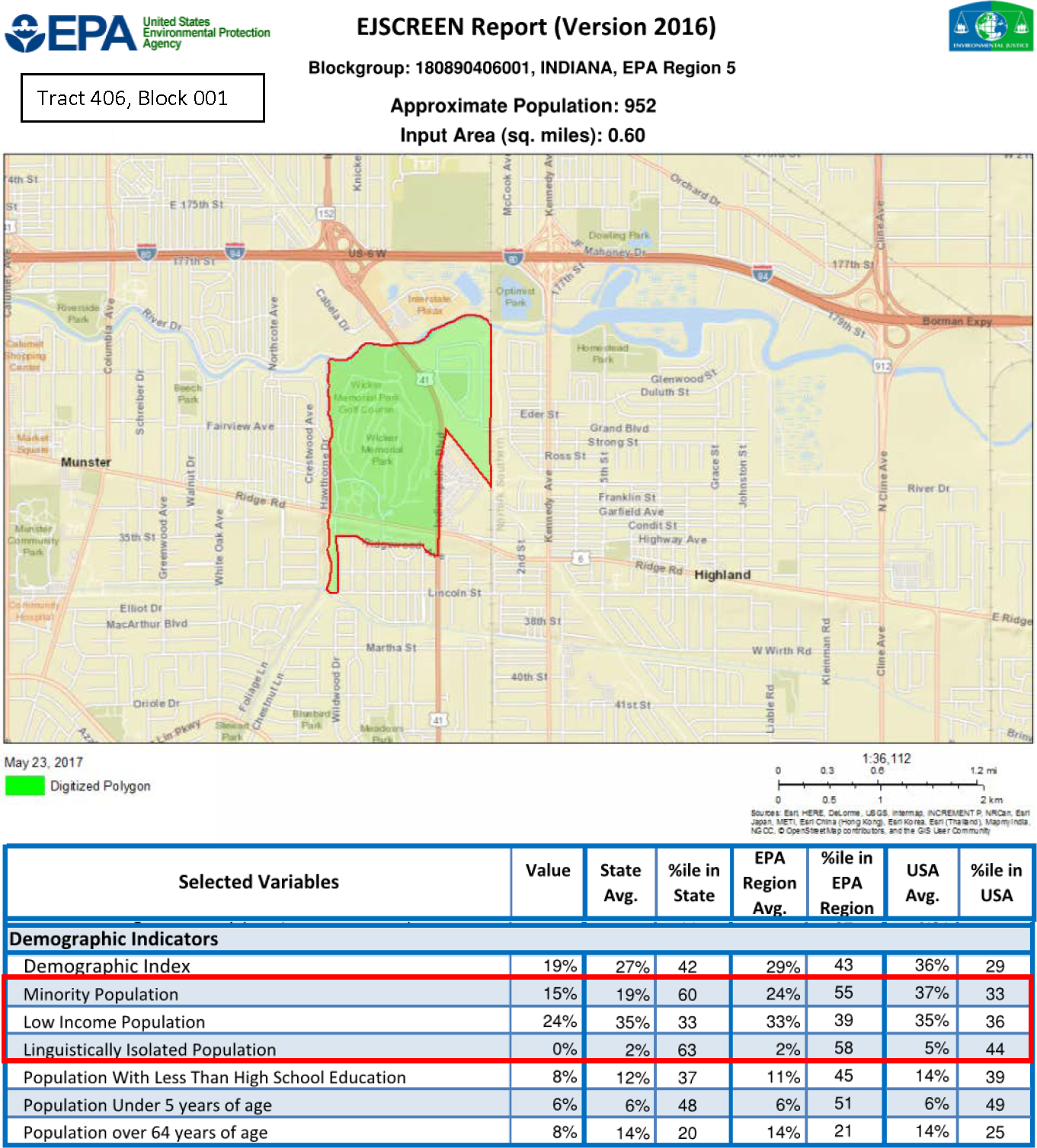
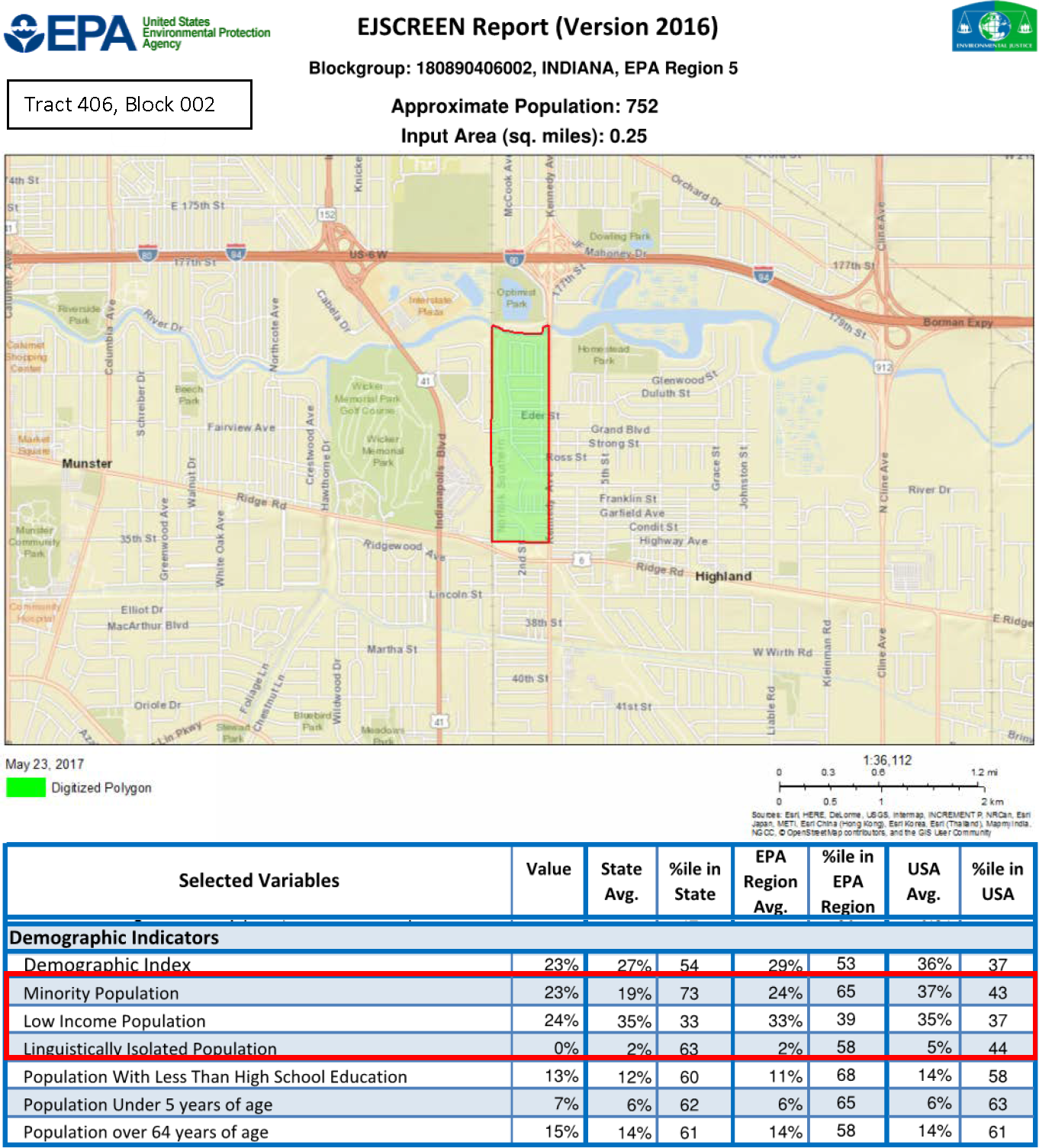
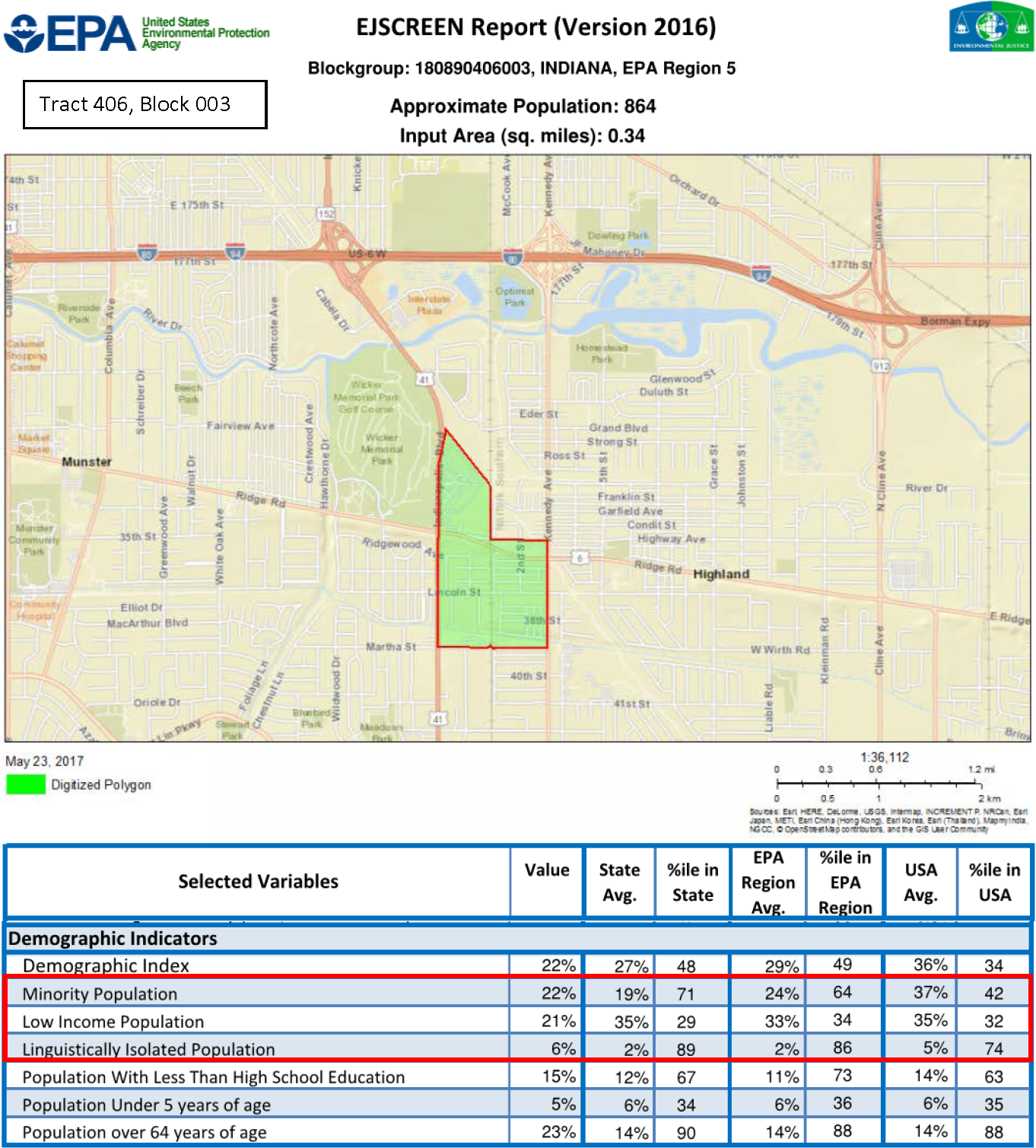
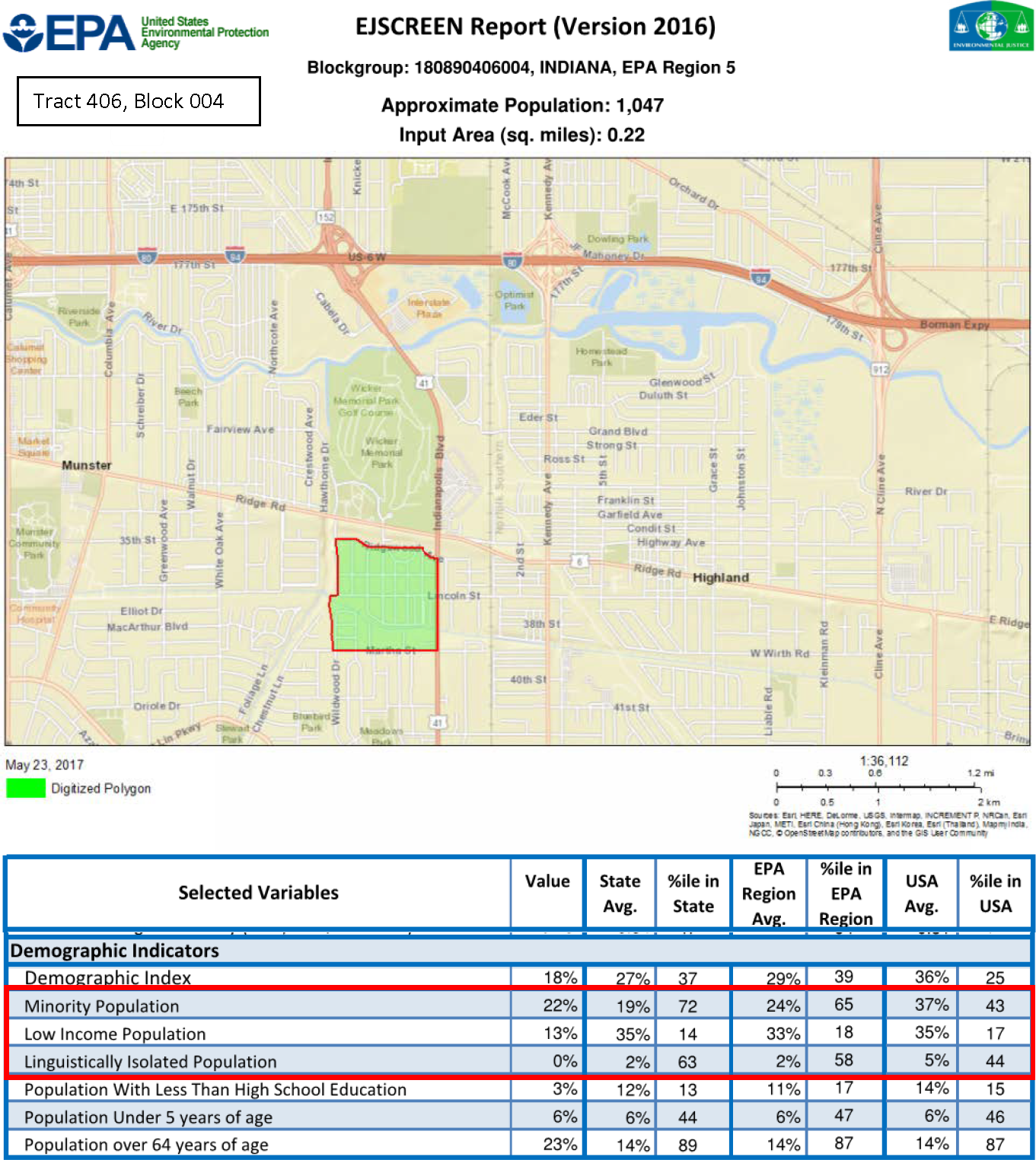
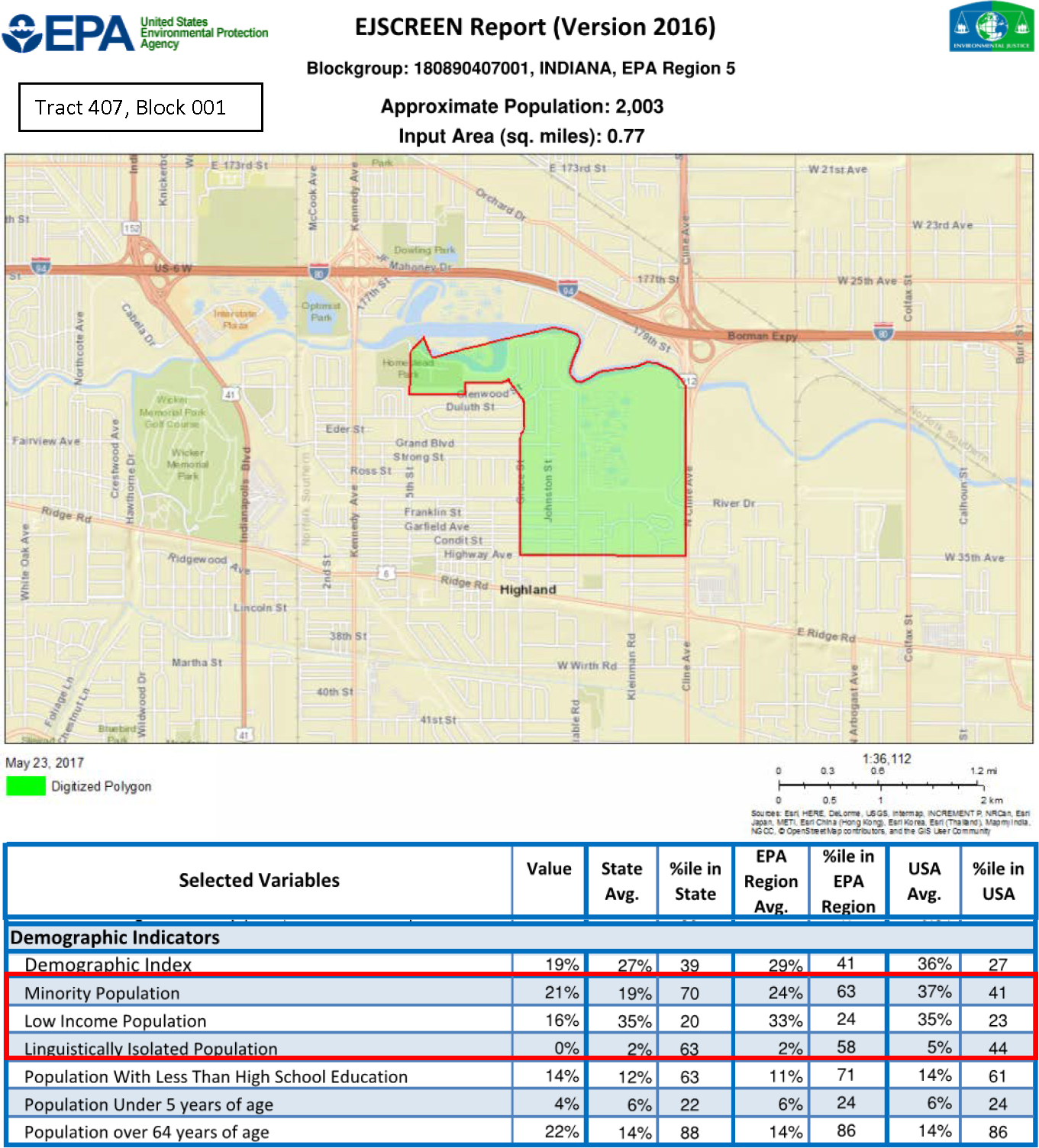
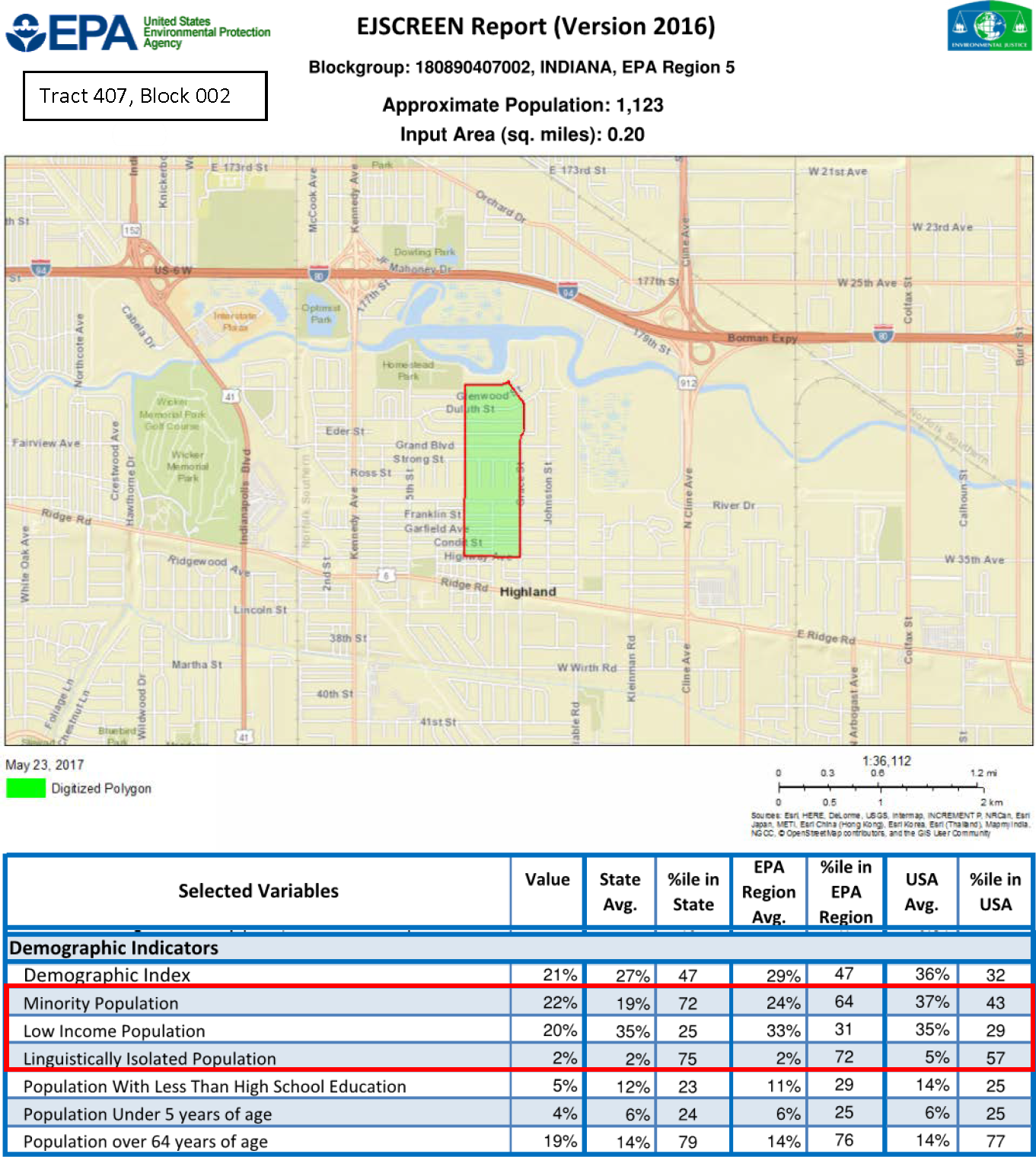
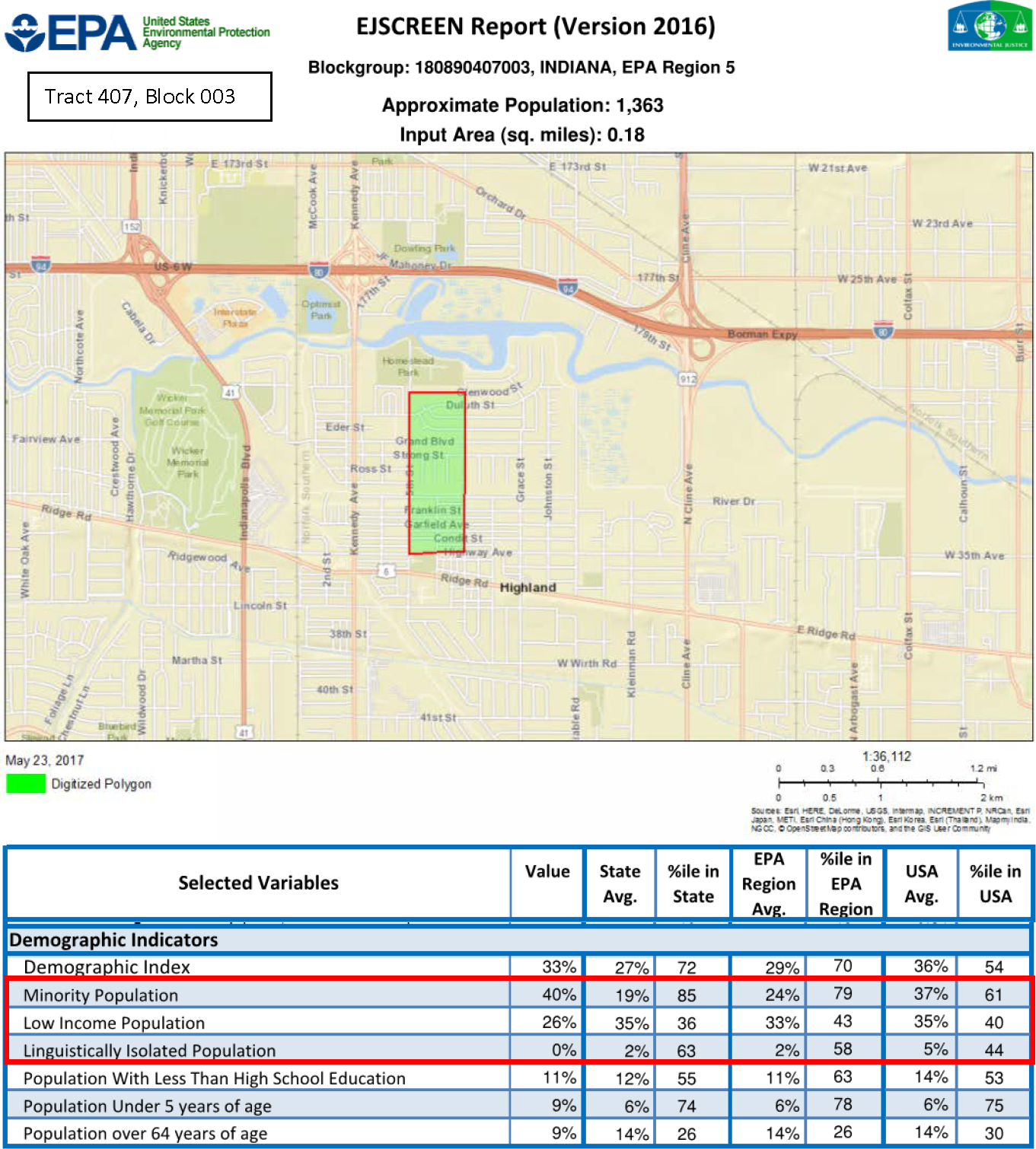
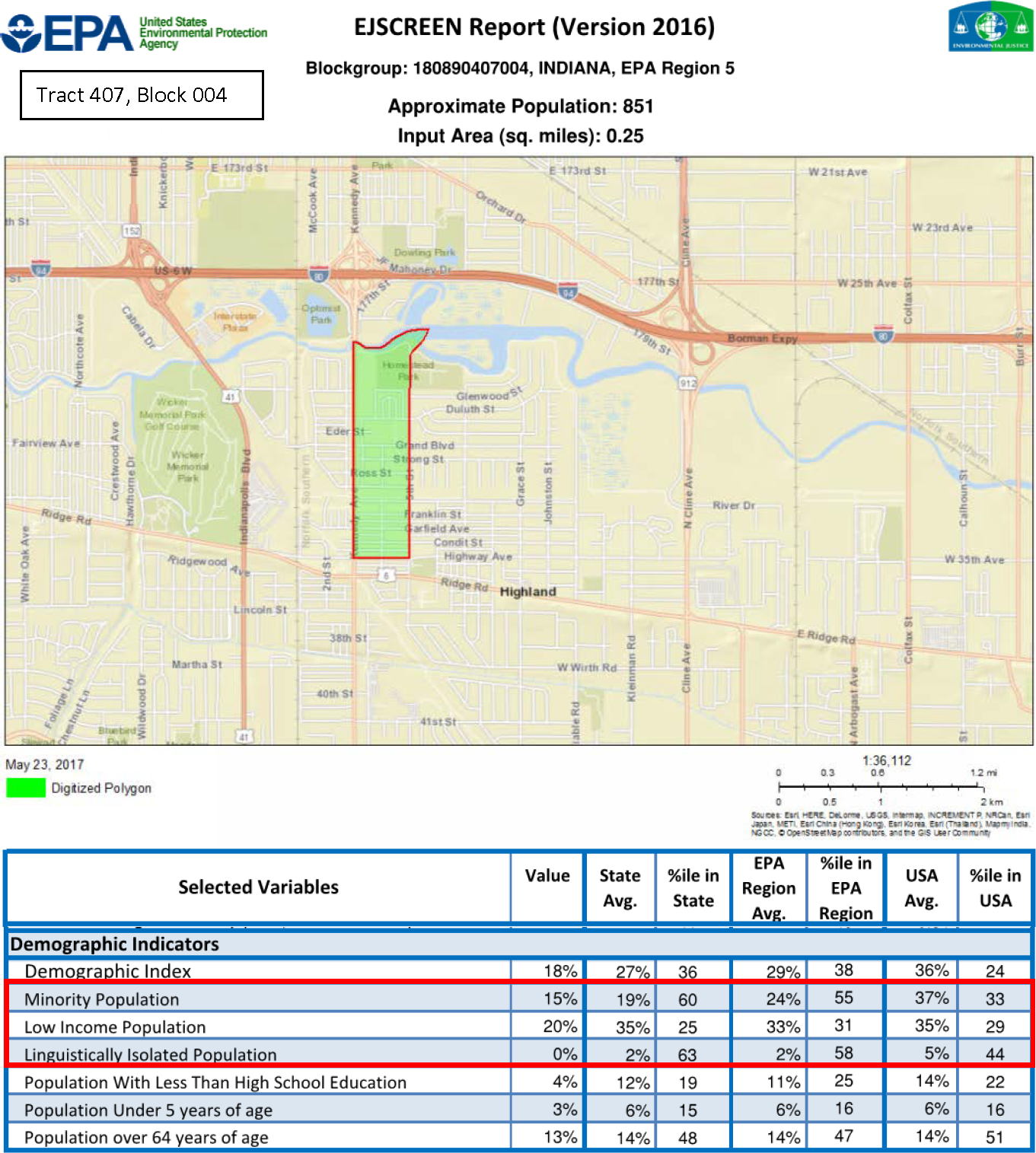
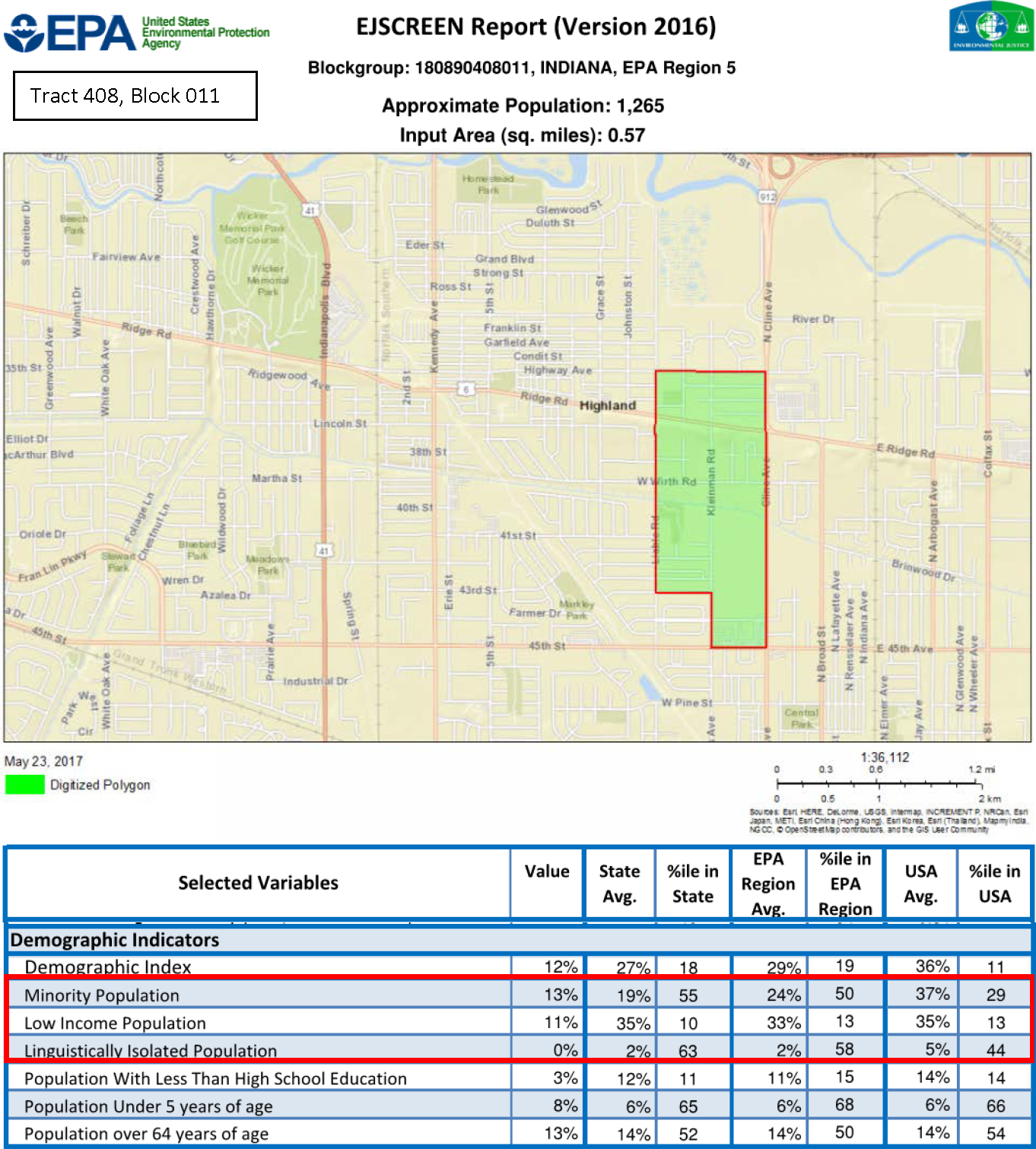
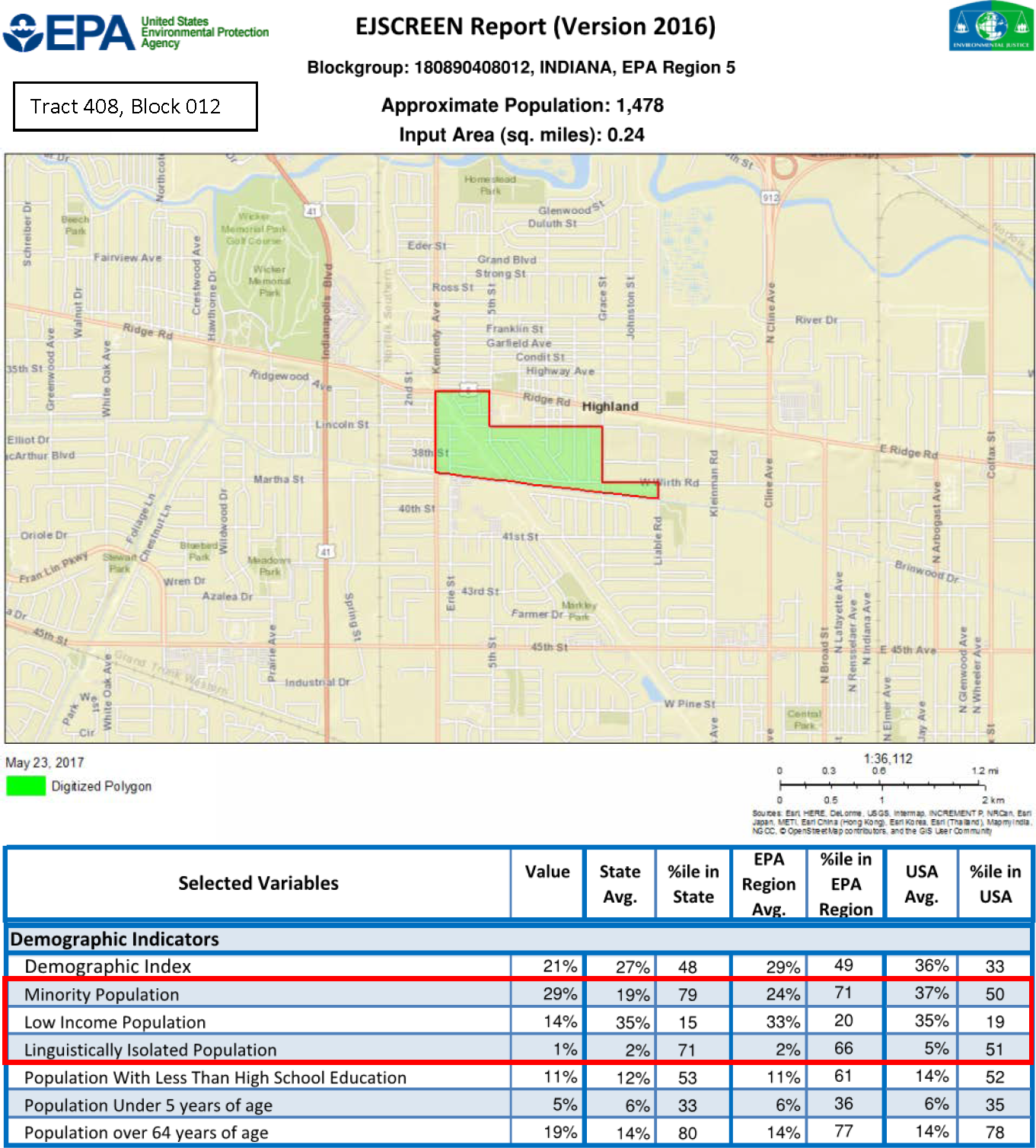
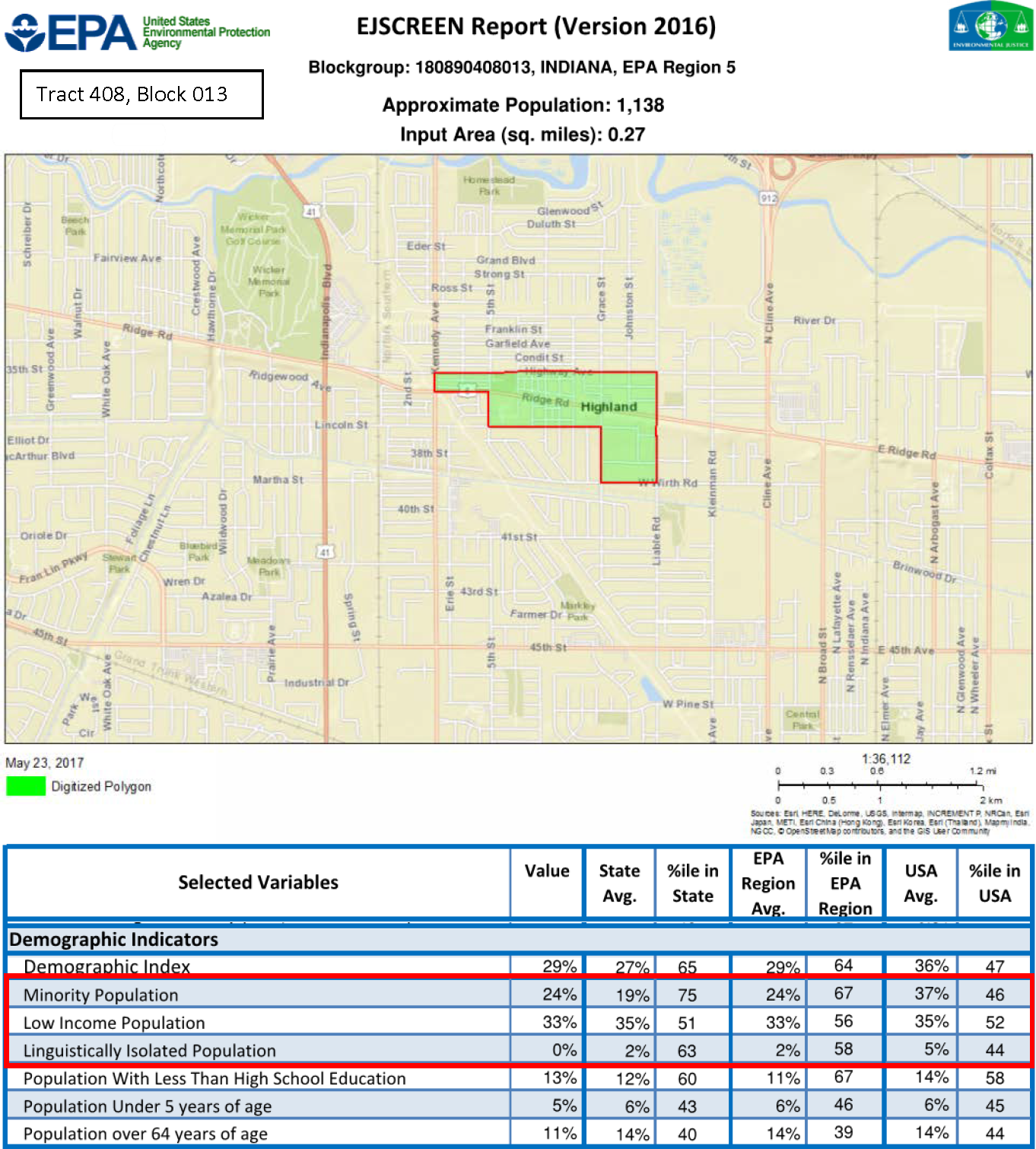
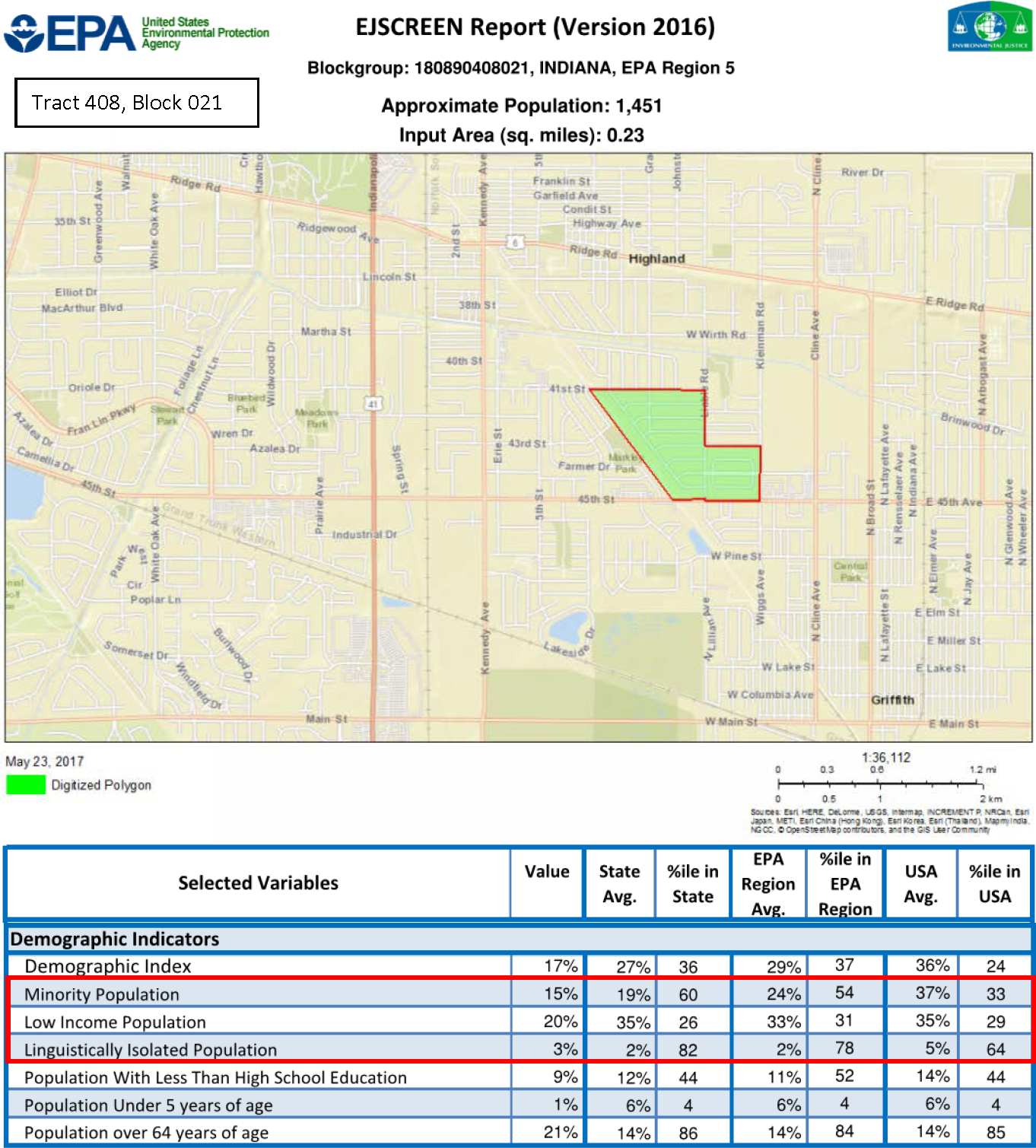
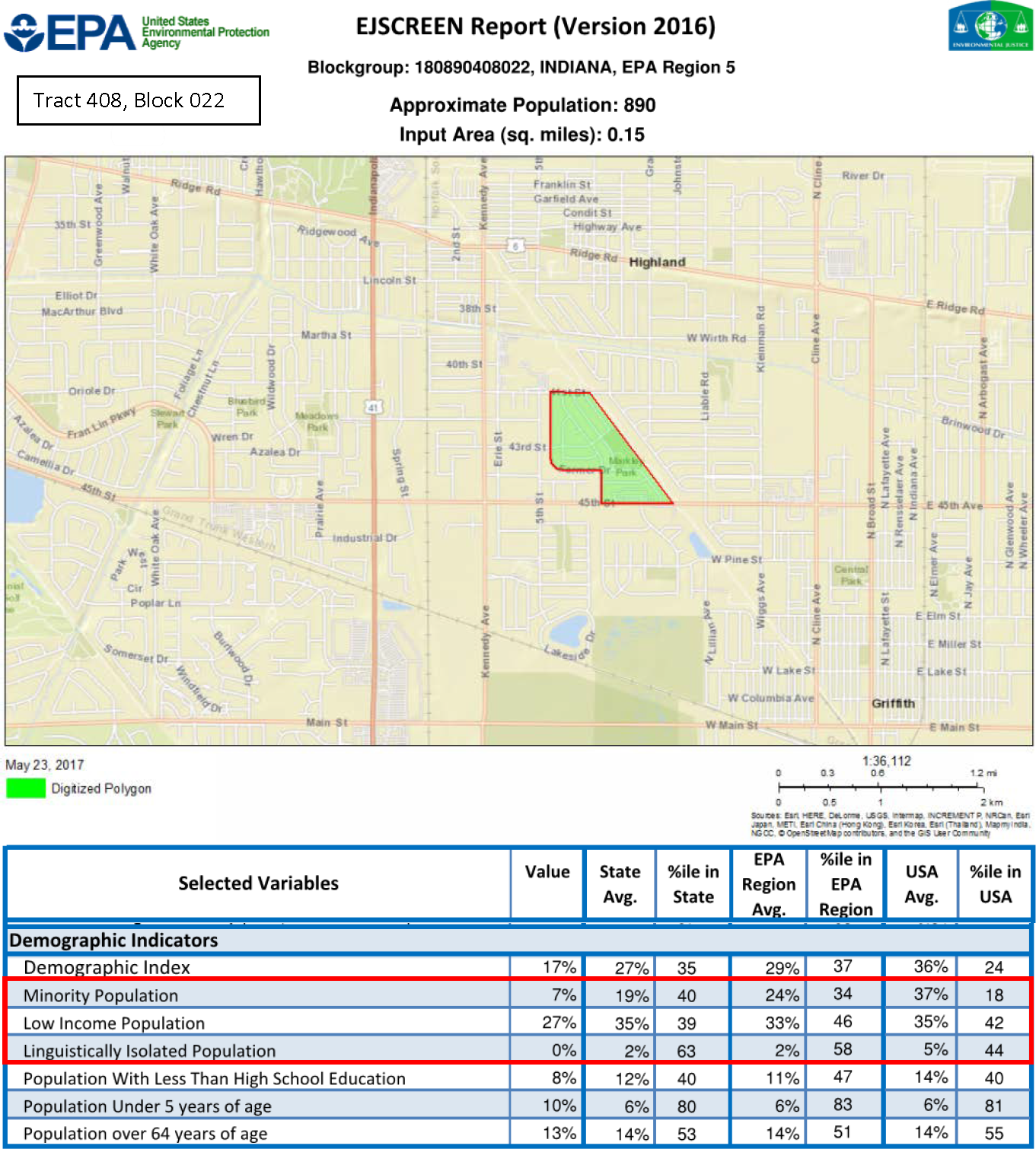
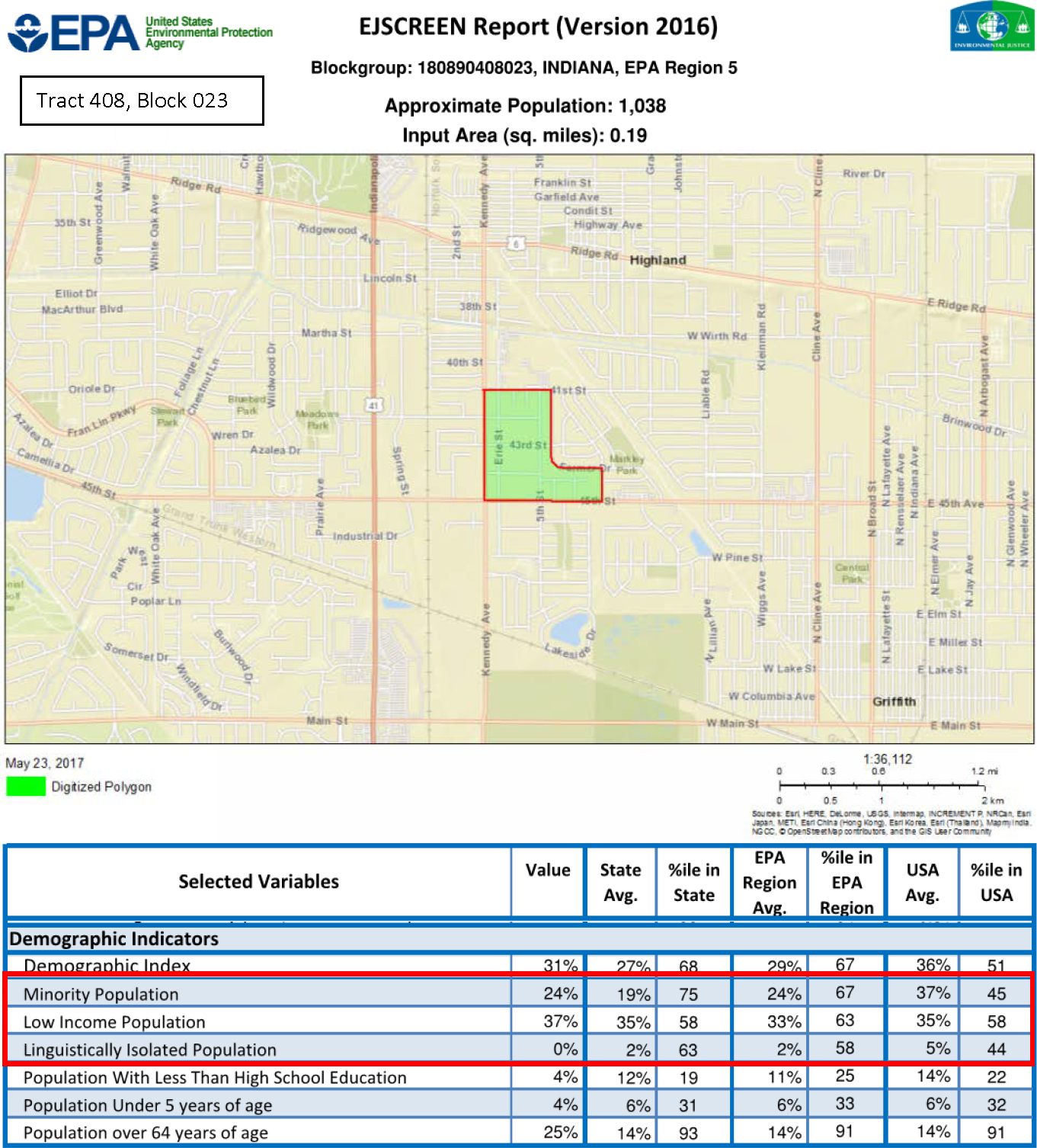
[Ord. 1716 § 1 (Exh. App. E), 2020].
2.01.340 Appendix F – Forms.
TOWN OF HIGHLAND NONDISCRIMINATION POLICY STATEMENT
The Town of Highland reaffirms its policy to allow all individuals the opportunity to participate in federal financially assisted services and adopts the following provision:
“No person in the United States shall, on the grounds of race, color, or national origin, be excluded from participation in, be denied the benefits of, or be subjected to discrimination under any program or activity receiving Federal financial assistance.”
In applying this policy, the Town, and its sub-recipients of federal funds, shall not:
1. Deny any individual with any services, opportunity, or other benefit for which such individual is otherwise qualified;
2. Provide any individual with any service or other benefit which is inferior (in quantity or quality) to, or which is provided in a different manner from, that which is provided to others;
3. Subject any individual to segregated or disparate treatment in any manner related to such individual’s receipt of services or benefits;
4. Restrict an individual in any way from the enjoyment of services, facilities, or any other advantage, privilege, or other benefit provided to others;
5. Adopt or use methods of administration which would limit participation by any group of recipients or subject any individual to discrimination;
6. Address any individual in a manner that denotes inferiority because of race, color, or national origin;
7. Permit discriminatory activity in a facility built in whole or in part with federal funds;
8. Deny any segment of the population the opportunity to participate in the operations of a planning or advisory body that is an integral part of a federally funded program;
9. Fail to provide information in a language other than English to potential or actual beneficiaries who are of limited English speaking ability, when requested and as appropriate;
10. Subject an individual to discriminatory employment practices under any federally funded program whose objective is to provide employment;
11. Locate a facility in any way which would limit or impede access to a federally funded service or benefit.
The Town of Highland will actively pursue the prevention of any Title VI deficiencies or violations and will take the necessary steps to ensure compliance. If irregularities occur in the administration of the program’s operation, procedures will be promptly implemented to resolve Title VI issues within a period not to exceed 90 days.
The Town of Highland designates the Town of Highland Public Works Director, as the Town’s Title VI Coordinator. The Title VI Coordinator will be responsible for initiating and monitoring Title VI activities and other required matters, ensuring that the Town of Highland complies with the Title VI regulations, and pursues prevention of Title VI deficiencies or violations. Inquiries concerning the Town of Highland and Title VI may be directed to the Title VI Coordinator at:
Town of Highland Title VI Coordinator
8001 Kennedy Street
Highland, IN 46322
Phone: (219) 972-5069
Fax: (219) 972-5085
|
___________________________________ |
___________________________________ |
|
Town Council President |
Town of Highland Title VI Coordinator |
TOWN OF HIGHLAND TITLE VI ASSURANCE
The Town of Highland, Indiana (hereinafter referred to as the “Recipient”), by its Town Council, HEREBY AGREES that as a condition to receiving any federal financial assistance from the U.S. Department of Transportation, it will comply with Title VI of the Civil Rights Act of 1964, 78 Stat. 252, 42 U.S.C. 2000d to 42 U.S.C. 2000d-4 (hereinafter referred to as the “Act”), and all requirements imposed by or pursuant to Title 49, Code of Federal Regulations, Department of Transportation, Subtitle A, Office of the Secretary, Part 21, Nondiscrimination in Federally Assisted Programs for the Department of Transportation – Effectuation of Title VI of the Civil Rights Act of 1964 (hereinafter referred to as the “Regulations”) and other pertinent directives, to the end that in accordance with the Act, Regulations, and other pertinent directives, no person in the United States shall, on the grounds of gender, race, color, or national origin, be excluded from participation in, be denied the benefits of, or be otherwise subjected to discrimination under any program or activity for which the Recipient received federal financial assistance from the Department of Transportation, including the Indiana Department of Transportation, and HEREBY GIVES ASSURANCES that it will promptly take any measures necessary to effectuate this assurance. This assurance is required by subsection 21.7 of the Regulations.
More specifically and without limiting the above general assurance, the Recipient hereby gives the following specific assurance with respect to the Federal Aid Highway Program:
1. That the Recipient agrees that each “program” and each “facility” as defined in subsections 21.23(e) and 21.23(b) of the Regulations, will be (with regard to a “program”) conducted, or will be (with regard to a “facility”) operated in compliance with all requirements imposed by, or pursuant to, the Regulations.
2. That the Recipient shall insert the following notification in all solicitations for bids for work or material subject to the Regulations and made in connection with all Federal Aid Highway Programs and, in adapted form in all proposals for negotiated agreements:
“The Town of Highland, Indiana, in accordance with Title VI of the Civil Rights Act of 1964, 78 Stat. 252, 42 U.S.C. 2000d to 2000d-4 and Title 49, Code of Federal Regulations, Department of Transportation, Subtitle A, Office the Secretary, Part 21, Nondiscrimination in Federally-Assisted Programs of the Department of Transportation issued pursuant to such Act, hereby notifies all bidders that it will affirmatively insure that in any contract entered into pursuant to this advertisement, minority business enterprises will be afforded full opportunity to submit bids in response to this invitation and will not be discriminated against on the grounds of race, color, or national origin in consideration for an award.”
3. That the Recipient shall insert the clauses of Appendix A of this assurance in every contract subject to the Act and the Regulations.
4. That the Recipient shall insert the clauses of Appendix B of this assurance, as a covenant running with the land, in any deed from the United States effecting a transfer of real property, structures, or improvements thereon, or interest therein.
5. That where the Recipient receives federal financial assistance to construct a facility, or part of a facility, the assurance shall extend to the entire facility and facilities operated in connection therewith.
6. That where the Recipient receives federal financial assistance in the form, or for the acquisition of real property or an interest in real property, the assurance shall extend to rights to space on, over, or under such property.
7. That the Recipient shall include the appropriate clauses set forth in Appendix C of this assurance, as a covenant running with the land, in any future deeds, leases, permits, licenses, and similar agreements entered into by the Recipient with other parties:
a. for the subsequent transfer of real property acquired or improved under the Federal Aid Highway Program; and
b. for the construction or use of, or access to space on, over, or under, real property acquired or improved under the Federal Aid Highway Program.
8. That this assurance obligates the Recipient for the period during which federal financial assistance is extended to the program, except where the federal financial assistance is to provide, or is in the form of, personal property or real property, or interest therein or structures or improvements thereon, in which case the assurance obligates the Recipient or any transferee for the longer of the following periods:
a. the period during which the property is used for a purpose for which the federal financial assistance is extended, or for another purpose involving the provision of similar services or benefits; or
b. the period during which the Recipient retains ownership or possession of the property.
9. The Recipient shall provide for such methods of administration for the program as are found by the Secretary of Transportation or the official to whom it delegates specific authority to give reasonable guarantee that it, other recipients, sub-grantees, contractors, subcontractors, transferees, successors in interest, and other participants of federal financial assistance under such program will comply with all requirements imposed or pursuant to the Act, the Regulations and this assurance.
10. The Recipient agrees that the United States has a right to seek judicial enforcement with regard to any matter arising under the Act, the Regulations, and this assurance.
This assurance is given in consideration of and for the purpose of obtaining any and all federal grants, loans, contracts, property, discounts or other federal financial assistance extended after the date hereof to the Recipient under the Federal Aid Highway Program and is binding on it, other recipients, sub-grantees, contractors, subcontractors, transferees, successors in interest and other participants in the Federal Aid Highway Program. The person or persons whose signatures appear below are authorized to sign this assurance on behalf of the Recipient.
PASSED AND ADOPTED by the Town Council of the Town of Highland by a _________ vote of all members present and voting this _____ day of ______________, 2020.
TOWN COUNCIL OF THE TOWN OF HIGHLAND
__________________________________________
Town Councilor – 1st Ward
__________________________________________
Town Councilor – 2nd Ward
__________________________________________
Town Councilor – 3rd Ward
__________________________________________
Town Councilor – 4th Ward
__________________________________________
Town Councilor – 5th Ward
ATTEST:
__________________________________________
Clerk-Treasurer
Appendix A
The following language is to be inserted in all federal-aid contracts:
During the performance of this contract, the contractor, for itself, its assignees and successors in interest (hereinafter referred to as the “contractor”) agrees, as follows:
1. Compliance with Regulations: The contractor shall comply with Regulations relative to nondiscrimination in Federally-assisted programs of the Department of Transportation, Title 49, Code of Federal Regulations, Part 21, as they may be amended from time to time (hereinafter referred to as the Regulations), which are herein incorporated by reference and made a part of this contract.
2. Nondiscrimination: The contractor, with regard to the work performed by it during the contract, shall not discriminate on the grounds of race, color, sex, or national origin in the selection, retention, and treatment of subcontractors, including procurements of materials in the discrimination prohibited by Section 21.5 of the Regulation, including employment practices when the contractor covers a program set forth in Appendix B of the Regulations.
3. Solicitation for Subcontracts, Including Procurements of Materials and Equipment: In all solicitations either by competitive bidding or negotiation made by the contractor for work to be performed under a subcontract, including procurements of materials or leases of equipment, each potential subcontractor or supplier shall be notified by the contractor of the contractor’s obligations under the contract and the Regulations relative to nondiscrimination on the grounds of race, color, or national origin.
4. Information and Reports: The contractor shall provide all information and reports required by the Regulations, or directives issued pursuant thereto, and shall permit access to its books, records, accounts, other sources of information, and its facilities as may be determined by the State Highway Department or the Federal Highway Administration to be pertinent to ascertain compliance with such Regulations or directives. Where any information required of a contractor is in the exclusive possession of another who fails or refuses to furnish this information, the contractor shall so certify to the State Highway Department or the Federal Highway Administration, as appropriate, and shall set forth what efforts it has made to obtain the information.
5. Sanctions for Noncompliance: In the event the contractor’s noncompliance with the nondiscrimination provisions of this contract, the State Highway Department shall impose such contract sanctions as it or the Federal Highway Administration may determine to be appropriate, including, but not limited to:
a. Withholding payments to the contractor under the contract until the contractor complies; and/or
b. Cancellation, termination or suspension of the contract, in whole or in part.
6. Incorporation of Provisions: The contractor shall include provisions of paragraphs (1) through (5) in every subcontract, including procurement of material and leases of equipment, unless exempt by the Regulations, or directives issued pursuant thereto. The contractor shall take such action with respect to any subcontract or procurement as the State Highway Department or the Federal Highway Administration may direct as a means of enforcing such provisions including sanctions for noncompliance: provided, however, that, in the event a contractor becomes involved in, or is threatened with, litigation with a subcontractor or supplier as a result of such direction, the contractor may request the State Highway Department to enter into such litigation to protect the interests of the State, and, in addition, the contractor may request the United States to enter into such litigation to protect the interests of the United States.
Appendix B
The following clauses shall be included in any and all deeds effecting or recording the transfer of real property, structures or improvements thereon, or interest therein from the United States:
[GRANTING CLAUSE]
NOW THEREFORE, the Department of Transportation, as authorized by law, and upon the condition that the Town of Highland, Indiana, will accept title to the lands and maintain the project constructed thereon, in accordance with Title 23, United States Code, the Regulations for the Administration of the Department of Transportation and, also in accordance with and in compliance with all requirements imposed by or pursuant to Title 49, Code of Federal Regulations, Department of Transportation, Subtitle A, Office of the Secretary, Part 21, Nondiscrimination in Federally-assisted programs of the Department of Transportation (hereinafter referred to as the Regulations) pertaining to and effectuating the provisions of Title VI of the Civil Rights Act of 1964 (78 Stat. 252; 42 U.S.C. 2000d to 2000d-4) does hereby remise, release, quitclaim and convey unto the Town of Highland, Indiana all the right, title, and interest of the Department of Transportation in and to said lands described Exhibit “A” attached hereto and made a part hereof.
[HABENDUM CLAUSE]
TO HAVE AND TO HOLD said lands and interests therein unto the Town of Highland, Indiana, and its successors forever, subject, however, to the covenants, conditions, restrictions, and reservations herein contained as follows, which will remain in effect for the period during which the real property or structures are used for a purpose for which Federal financial assistance is extended or for another purpose involving the provision of similar services or benefits and shall be binding on the Town of Highland, Indiana, its successors and assigns.
The Town of Highland, Indiana, in consideration of the conveyance of said lands and interests in lands, does hereby covenant and agree as a covenant running with the land for itself, its successors, and assigns, that (1) no person shall on the grounds of race, color, sex, age, disability, income status, or national origin, be excluded from participation in, be denied the benefits of, or be otherwise subjected to discrimination with regard to any facility located wholly or in part, on, over, or under such lands hereby conveyed (,) (and)* (2) that the Town of Highland, Indiana, shall use the lands and interests in lands so conveyed, in compliance with all requirements imposed by or pursuant to Title 49, Code of Federal Regulations, Department of Transportation, Subtitle A, Office of the Secretary, Part 21, Nondiscrimination in Federally-assisted programs of the Department of Transportation Effectuation of Title VI of the Civil Rights Act of 1964, and as said Regulations may be amended (,) and (3) that in the event of breach of any of the above-mentioned nondiscrimination conditions, the Department shall have a right to re-enter said lands and facilities on said land, and the above described land and facilities shall thereon revert to and vest in and become the absolute property of the Department of Transportation and its assigns as such interest existed prior to this deed.*
*Reverter clause and related language to be used only when it is determined that such a clause is necessary in order to effectuate the purpose of Title VI of the Civil Rights Act of 1964.
Appendix C
The following clauses shall be included in all deeds, licenses, leases, permits, or similar instruments entered into by the town of Highland, Indiana, pursuant to the provisions of HMC 2.01.040(B)(7)(a):
The grantee, licensee, lessee, permittee, etc., (as appropriate) for himself, his heirs, personal representative, successors in interest, and assigns, as a part of the consideration hereof, does hereby covenant and agree (in the case of deeds and leases, add, “as a covenant running with the land”) that in the event facilities are constructed, maintained, or otherwise operated on the said property described in this (deed, license, lease, permit, etc.) for a purpose for which a Department of Transportation program or activity is extended or for another purpose involving the provision of similar services or benefits, the (grantee, licensee, lessee, permittee, etc.) shall remain and operate such facilities and services in compliance with all other requirements imposed pursuant to Title 49, Code of Federal Regulations, Department of Transportation, Subtitle A, Office of the Secretary, Part 21, Nondiscrimination in Federally-assisted programs of the Department of Transportation – Effectuation of Title VI of the Civil Rights Act of 1964, and as said Regulations may be amended.
(Include in licenses, leases, permits, etc.)*:
That in the event of breach of any of the above nondiscrimination covenants, the Town of Highland, Indiana shall have the right to terminate the license, lease, permit, etc., and to re-enter and repossess said land and the facilities thereon, and hold the same as if said license, lease, permit, etc., had never been made or issued.
(Include in deeds)*:
That in the event of breach of any of the above nondiscrimination covenants, the Town of Highland, Indiana, shall have the right to re-enter lands and facilities hereon, and the above described lands and facilities shall thereupon revert to and vest in and become the absolute property of the State of Indiana Department of Transportation and its assigns.
*Reverter clause and related language to be used only when it is determined that such a clause is necessary in order to effectuate the purpose of the Title VI of the Civil Rights Act of 1964 and the Civil Rights Act of 1987.
TOWN OF HIGHLAND TITLE VI COMPLAINT FORM
Title VI of the Civil Rights Act of 1964 states that “No person in the United States shall on the grounds of race, color, or national origin, be excluded from participation in, be denied the benefit of, or otherwise be subjected to discrimination in any program, service, or activity receiving federal assistance.”
This form may be used to file a complaint with the Town of Highland based on violations of Title VI of the Civil Rights Act of 1964. You are not required to use this form; a letter that provides the same information may be submitted to file your complaint. Complaints should be filed within 180 days of the alleged discrimination. If you could not reasonably be expected to know the act was discriminatory within the 180-day-period, you have 60 days after you became aware to file your complaint.
If you need assistance completing this form, please contact Town of Highland Title VI Coordinator by phone at (219) 972-5069 or via e-mail at _____________@highland.in.gov.
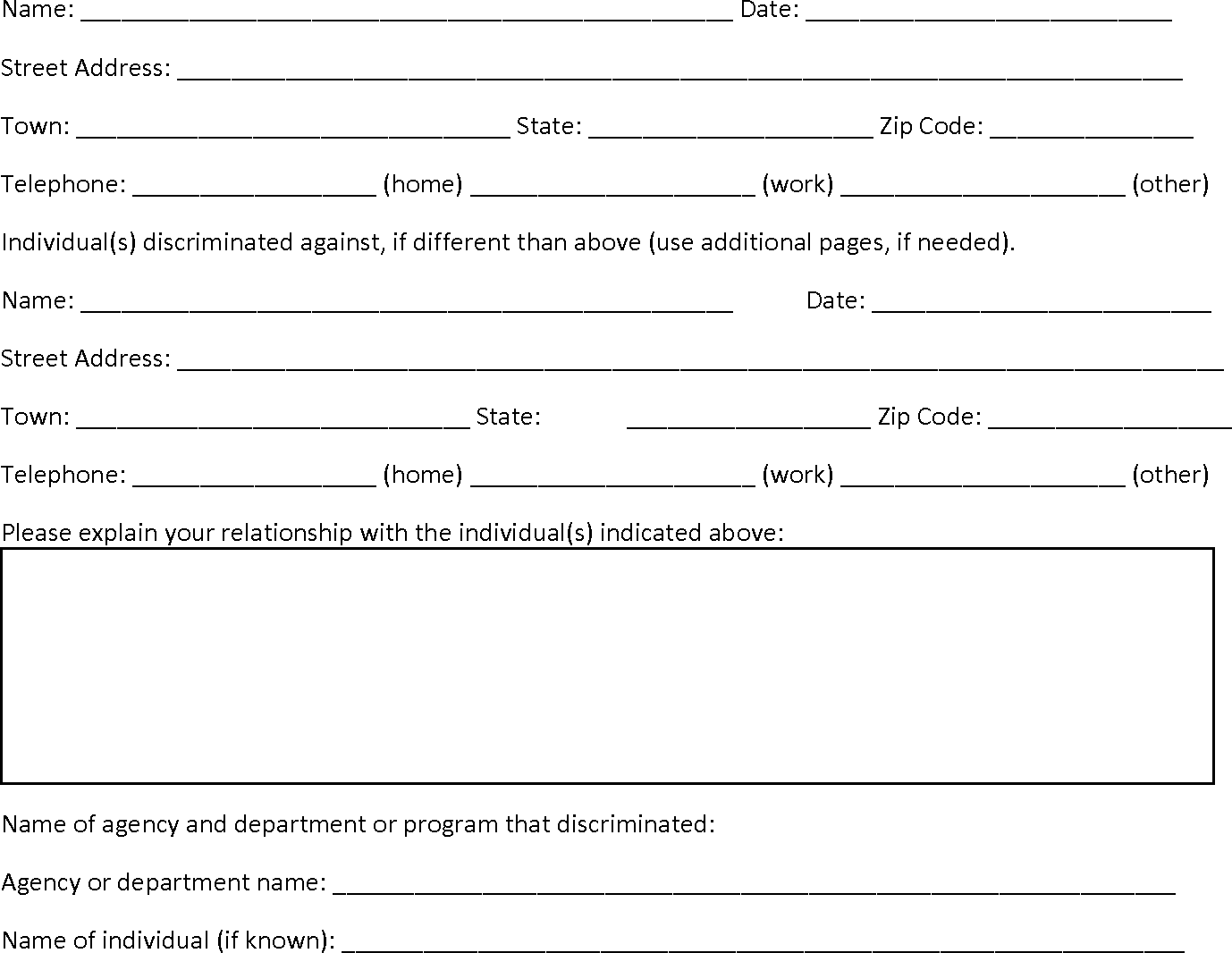
TOWN OF HIGHLAND TITLE VI COMPLAINT FORM (CONTINUED)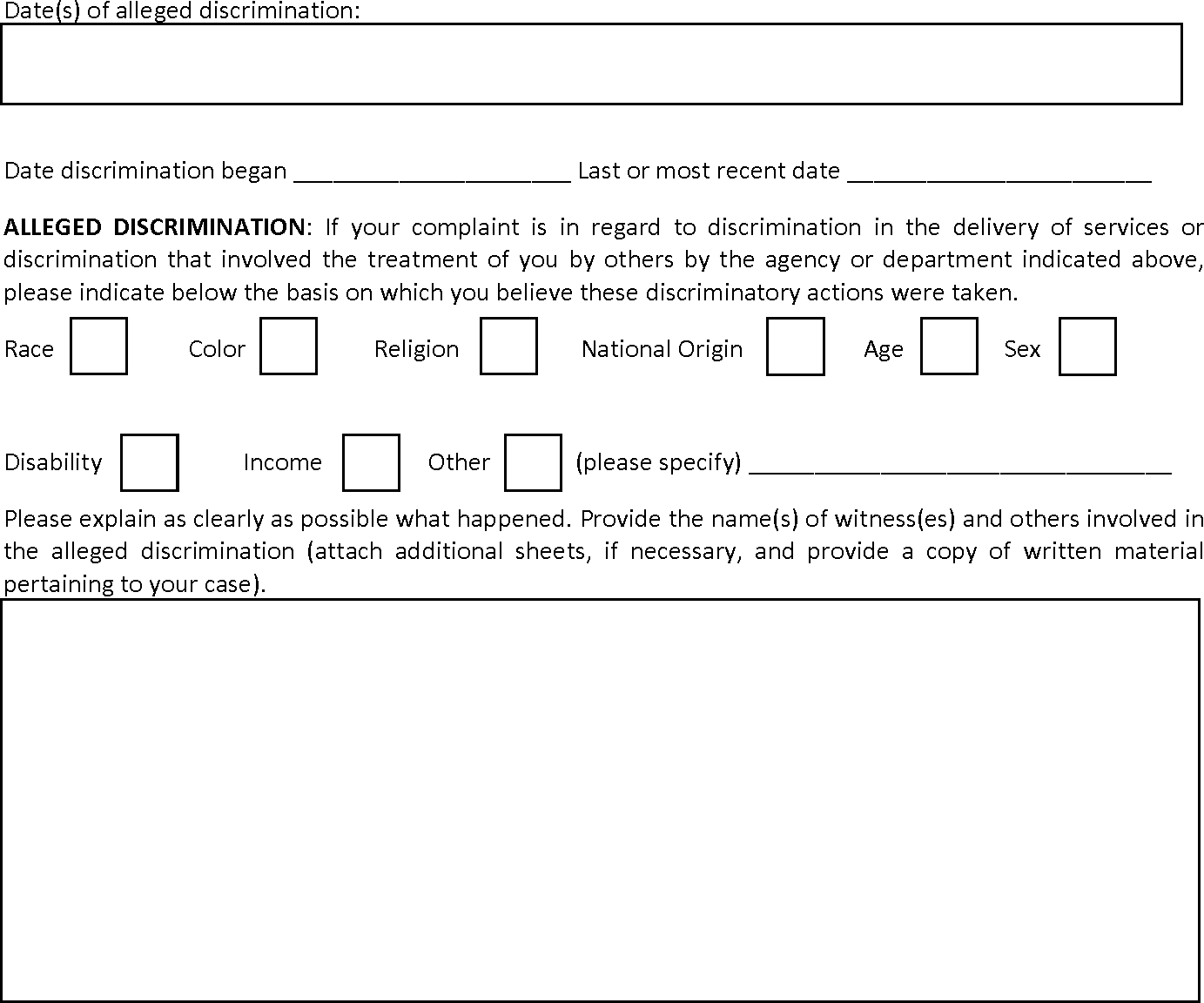
Signature: ______________________________________
|
Please return completed form to: |
Town of Highland Title VI Coordinator |
|
|
8001 Kennedy Street |
|
|
Highland, IN 46322 |
|
|
Phone: (219) 972-5069 |
|
|
Fax: (219) 972-5085 |
Note: The Town of Highland prohibits retaliation or intimidation against anyone because that individual has either taken action or participated in action to secure rights protected by policies of the Town. Please inform the person listed above if you feel you were intimidated or experience perceived retaliation in relation to filing this complaint.
COMPLAINANT CONSENT/RELEASE FORM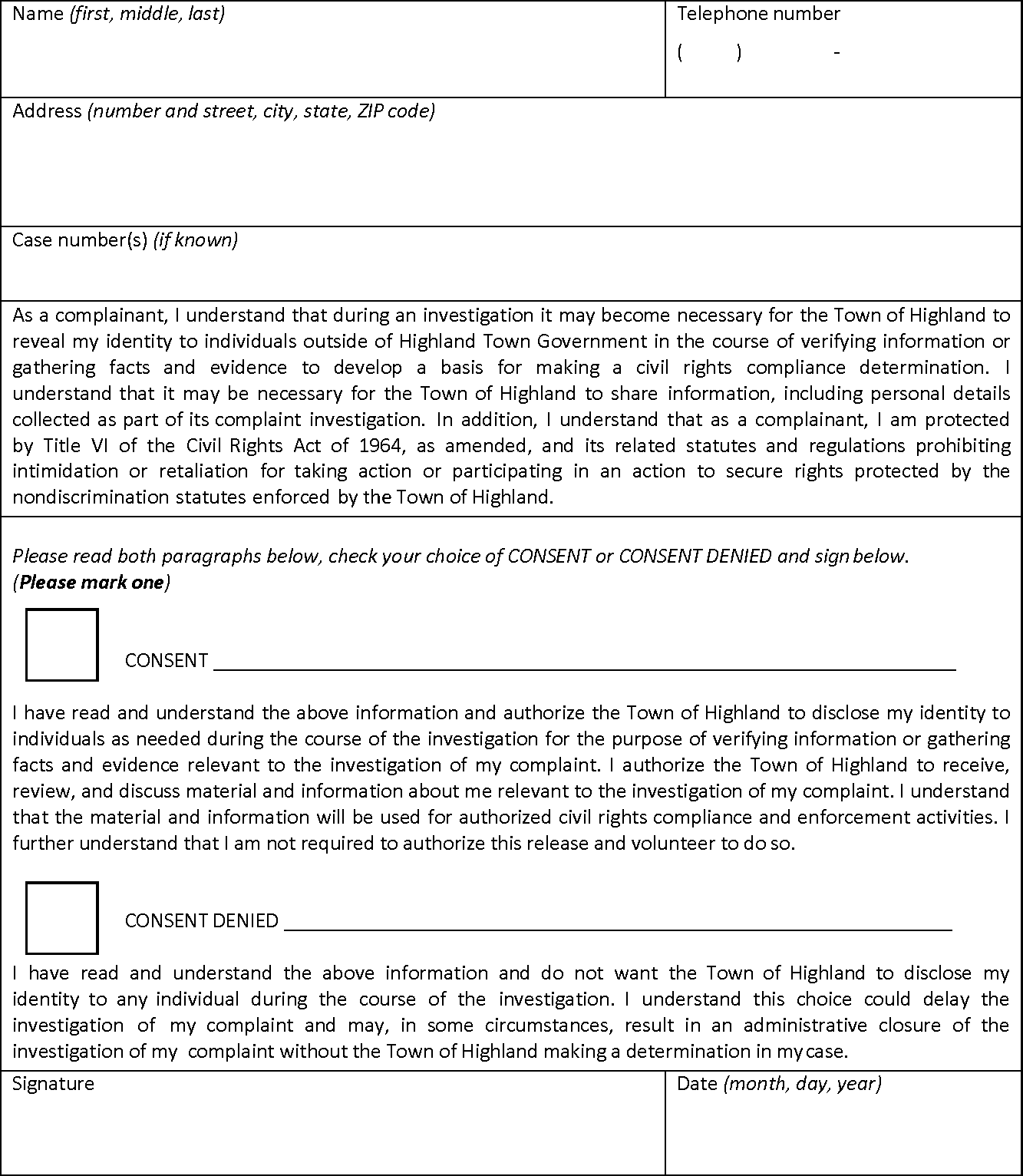
VOLUNTARY TITLE VI PUBLIC INVOLVEMENT SURVEY
As a recipient of federal funds, the Indiana Department of Transportation (INDOT) is requiring local agencies to develop a procedure for gathering statistical data regarding participants and beneficiaries of its federal-aid highway programs and activities (23 CFR §200.9(b)(4)). The Town of Highland is distributing this voluntary survey to fulfill that requirement to gather information about the populations affected by proposed projects.
You are not required to complete this survey. Submittal of this information is voluntary and anonymous. This form is a public document that the Town of Highland will use to monitor its programs and activities for compliance with Title VI and the Civil Rights Act of 1964, as amended, and its related statutes and regulations.
You may return the survey by folding it and placing it on the registration table or by mailing or e-mailing it to the address below.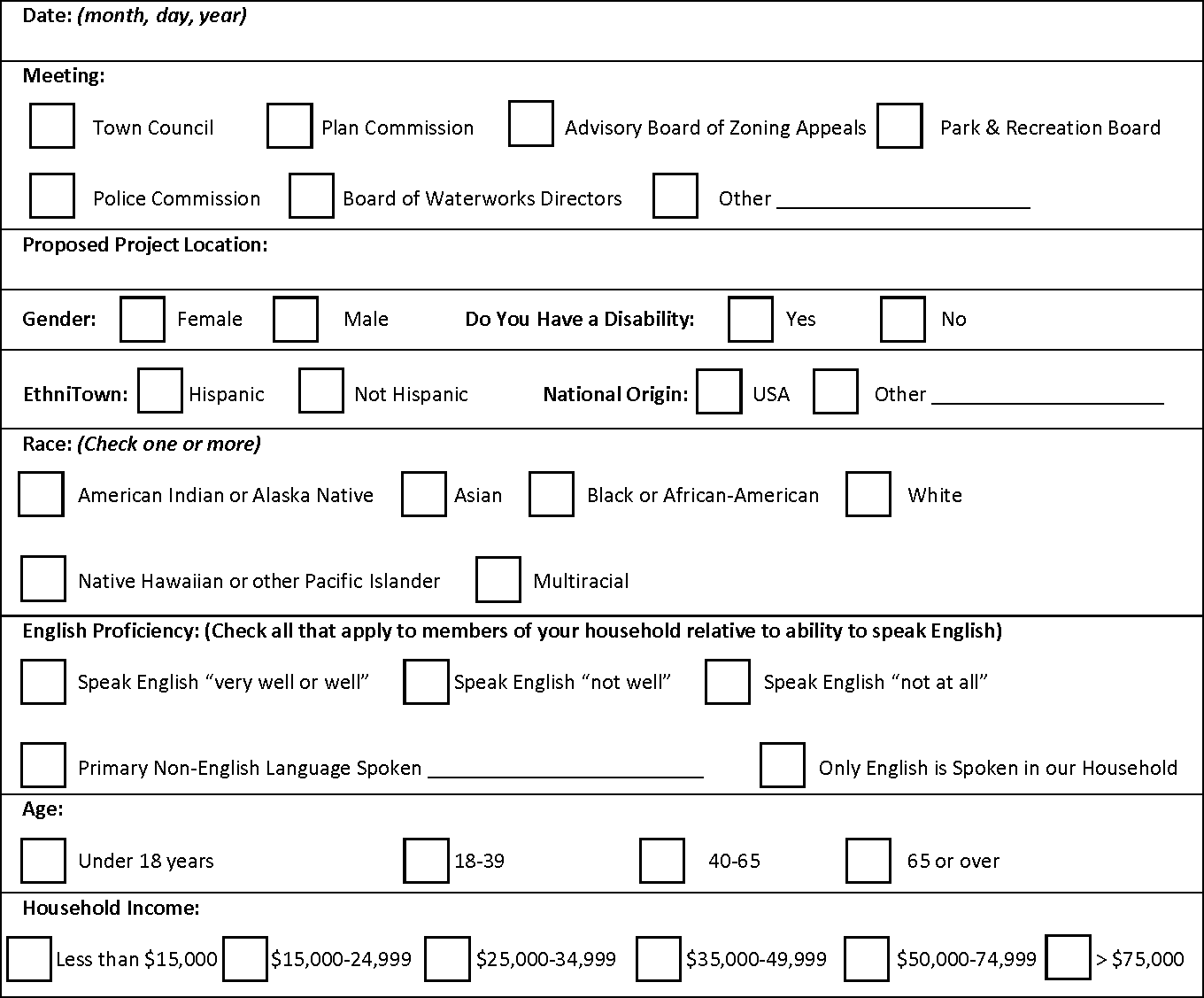
If you have any questions regarding the Town of Highland’s responsibilities under Title VI of the Civil Rights Act of 1964 or the Americans with Disabilities Act, please contact the Title VI Coordinator at (219) 972-5069.
TOWN OF HIGHLAND TITLE VI COMPLAINT LOG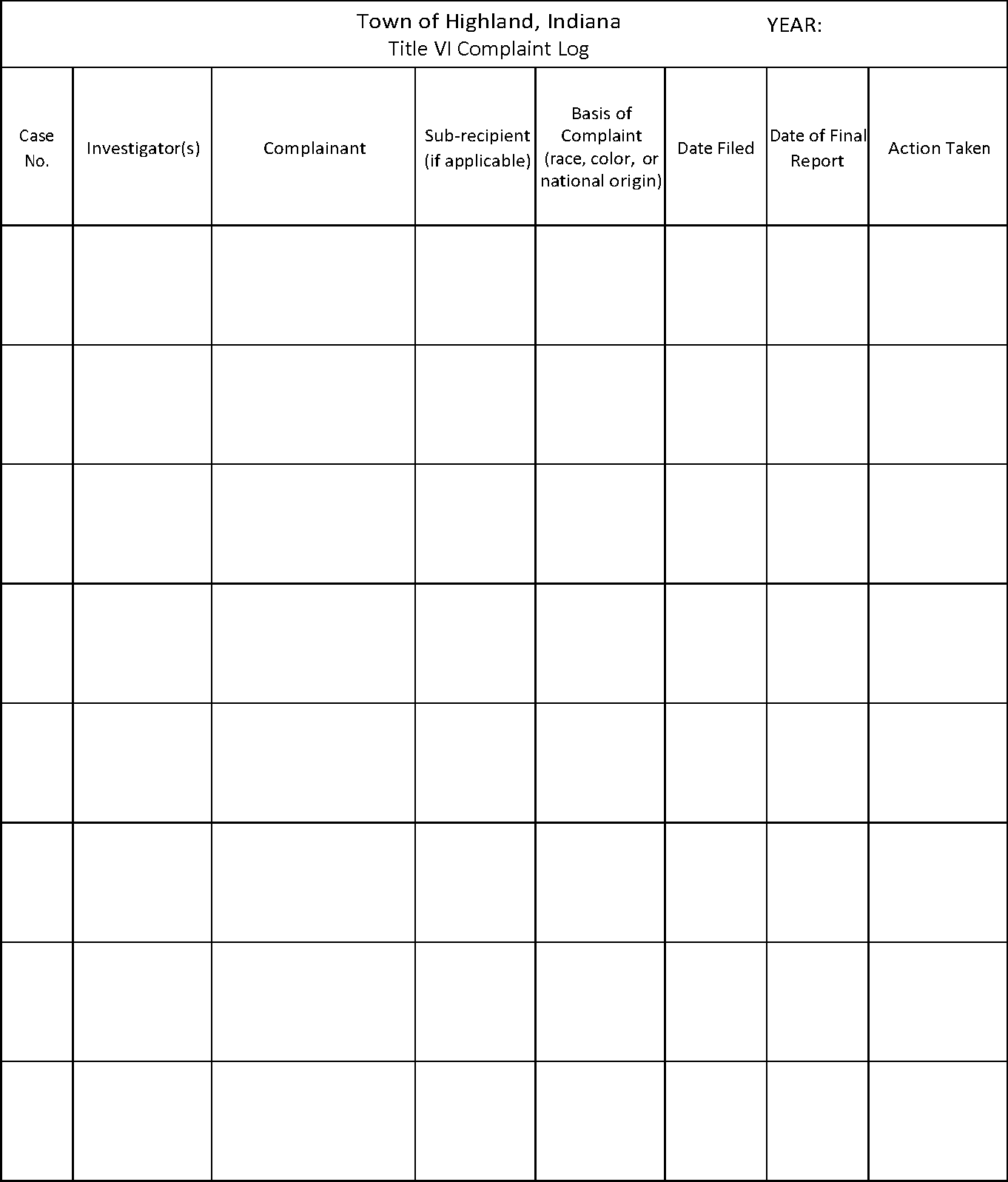
TOWN OF HIGHLAND TITLE VI TRAINING ATTENDANCE LOG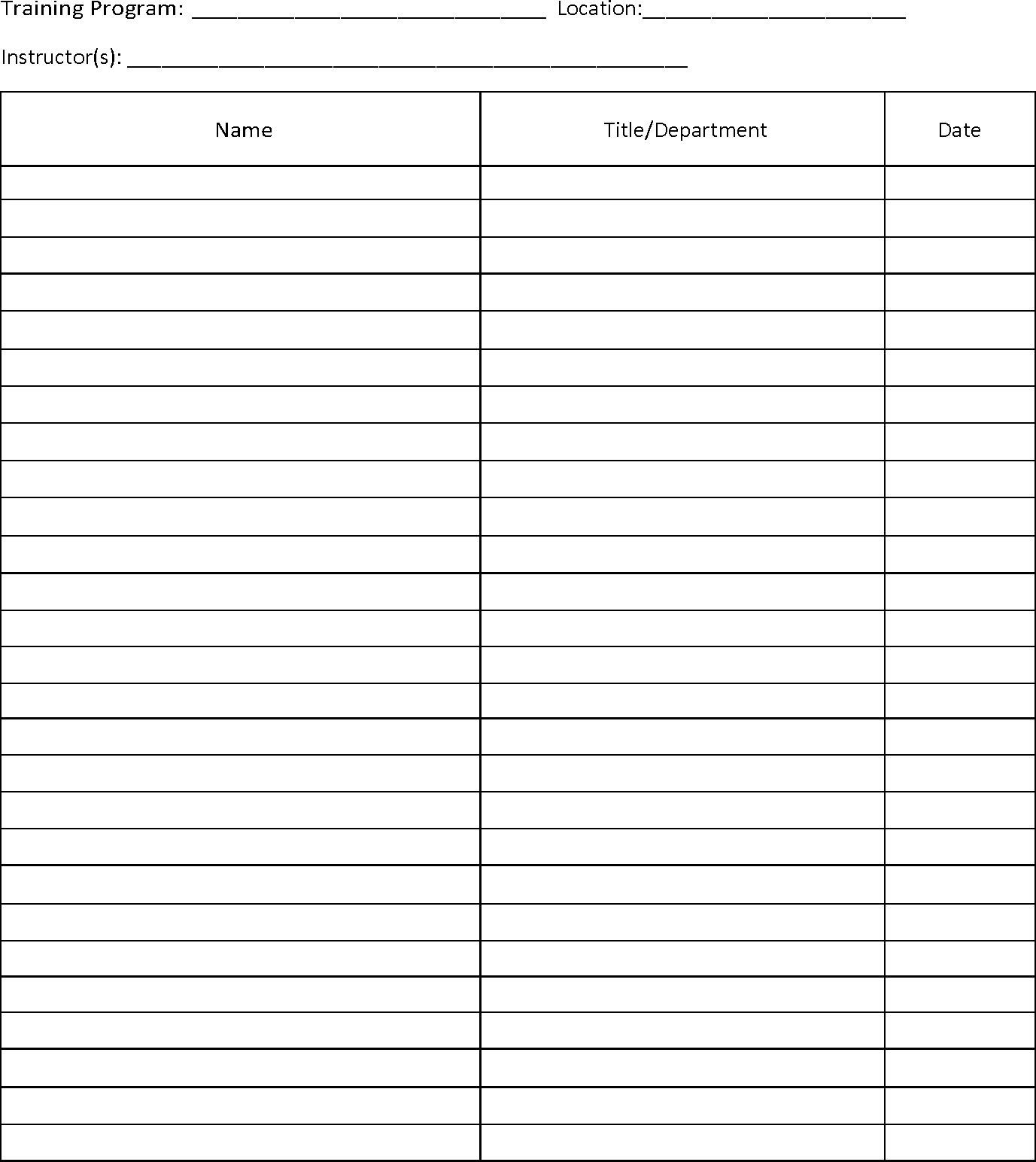
Attach any handouts provided by the trainer and maintain in Town records.
LANGUAGE IDENTIFICATION FLASHCARDS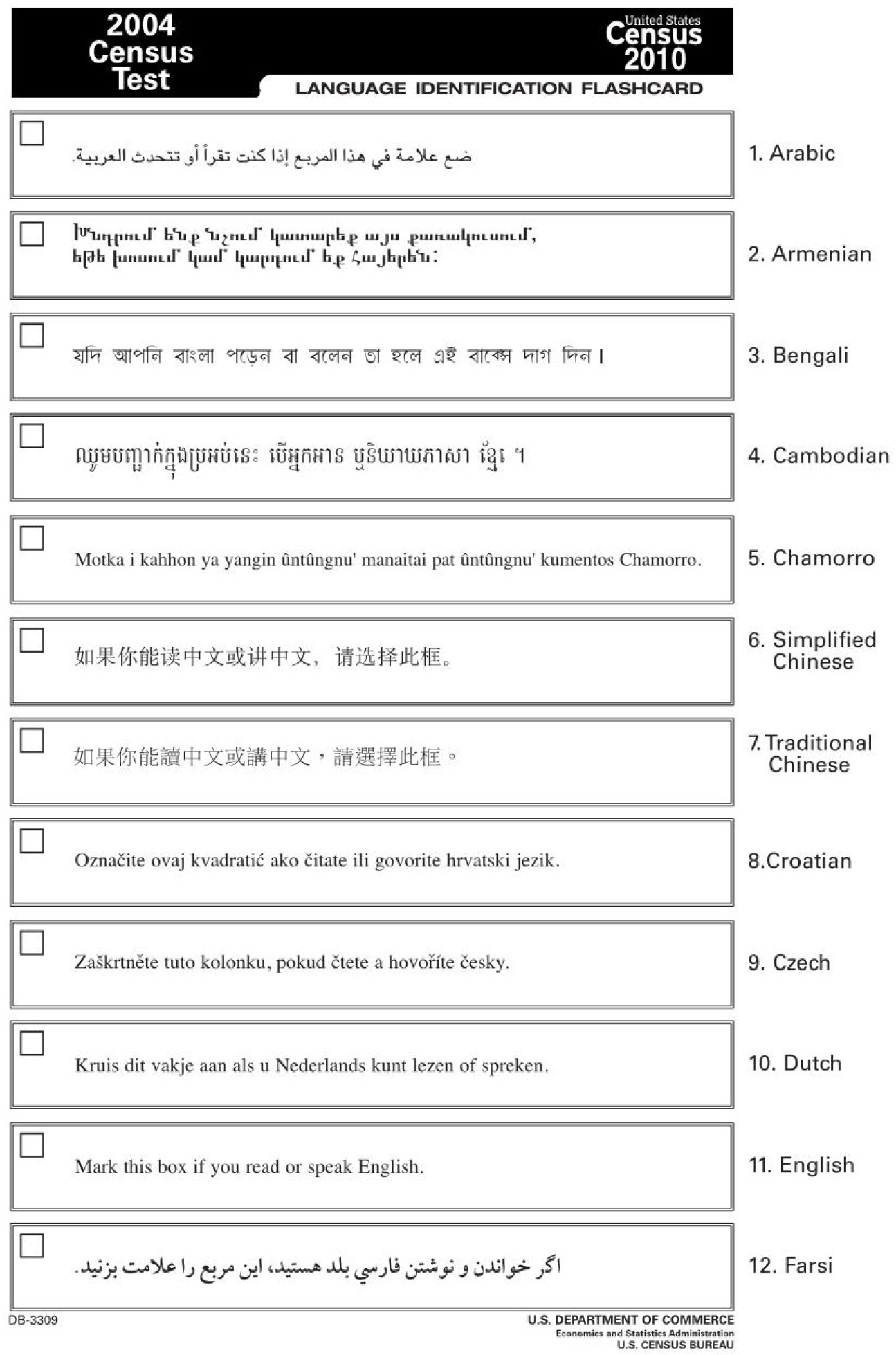
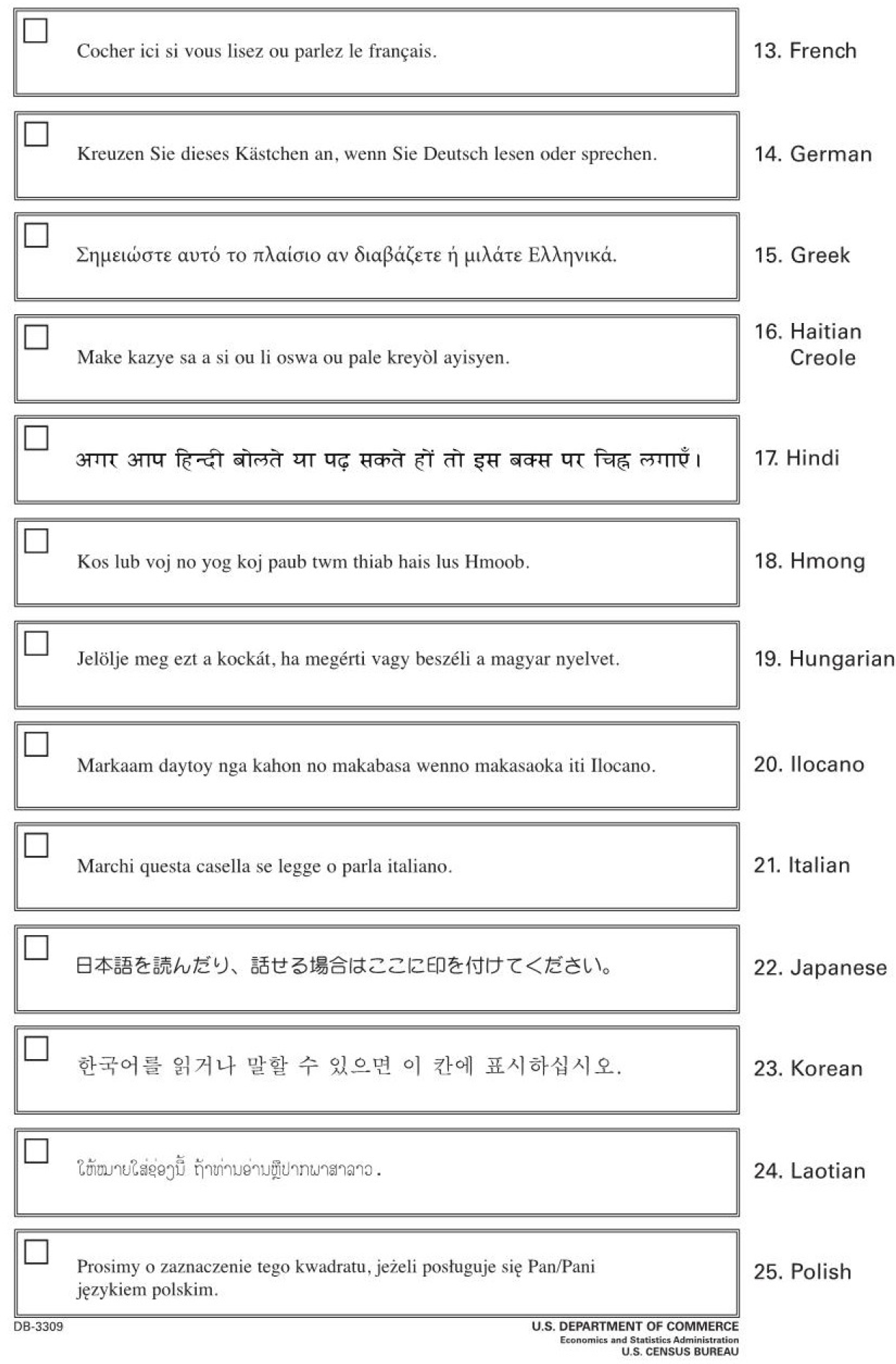
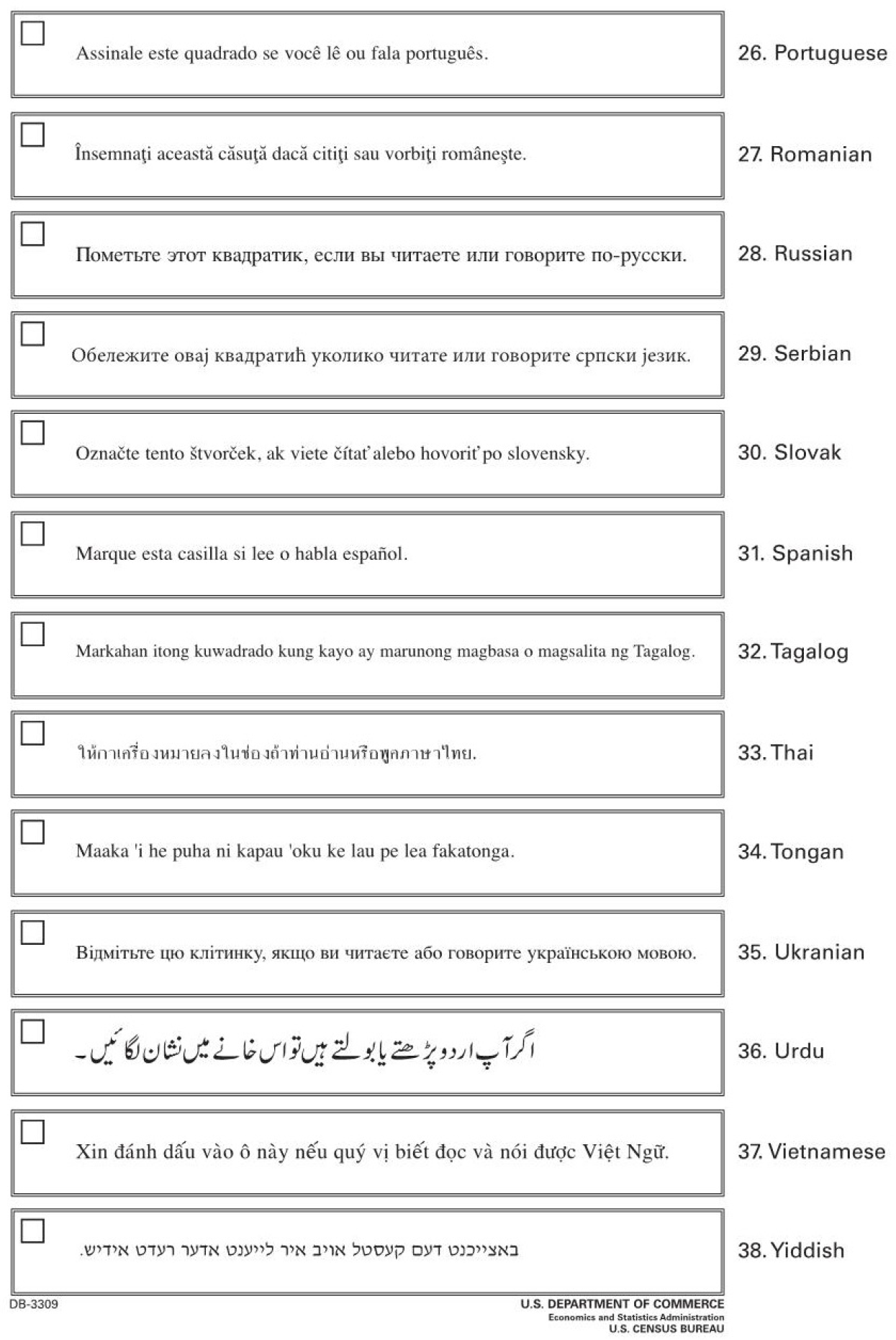
[Ord. 1716 § 1 (Exh. App. F), 2020].


